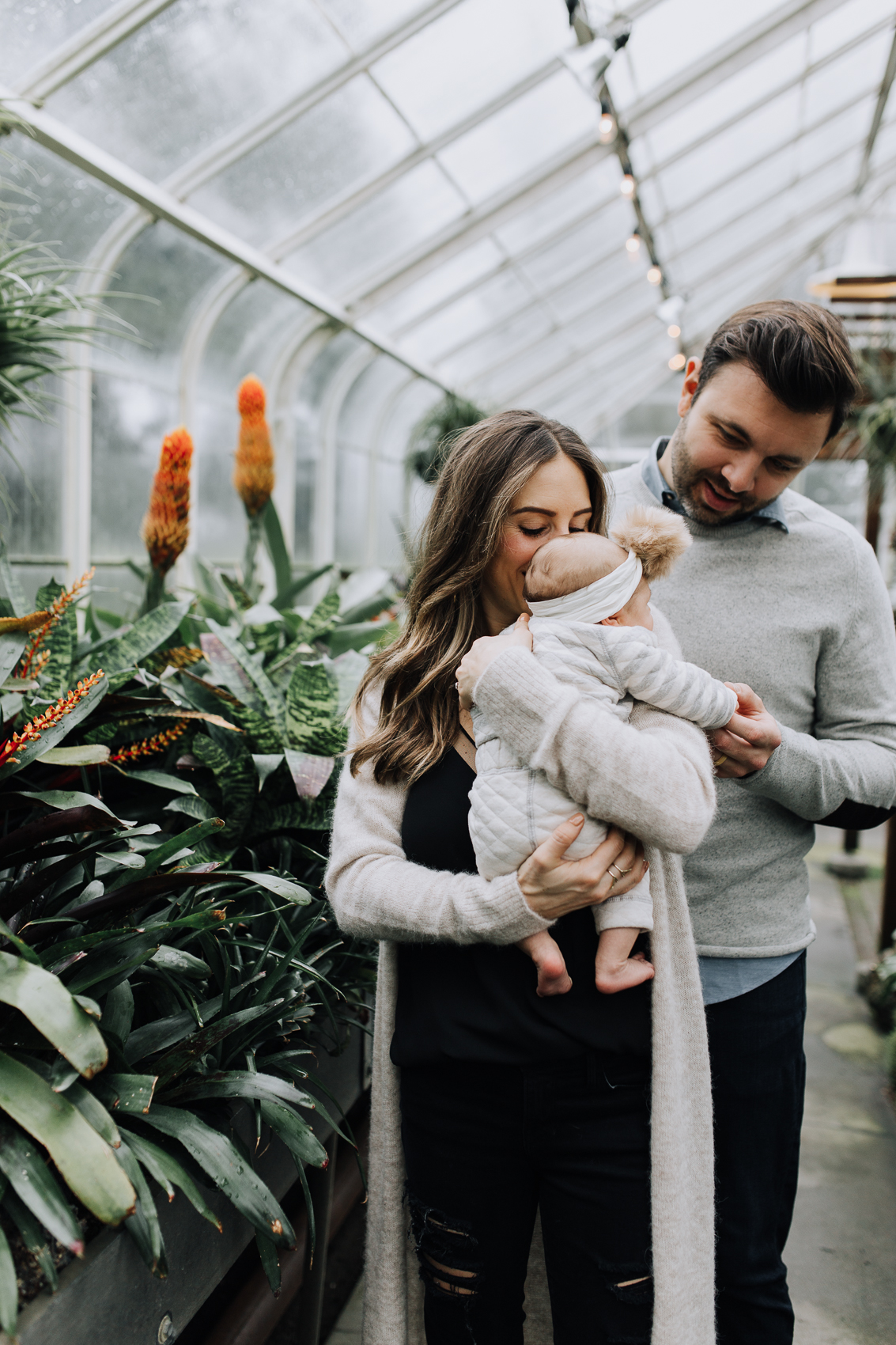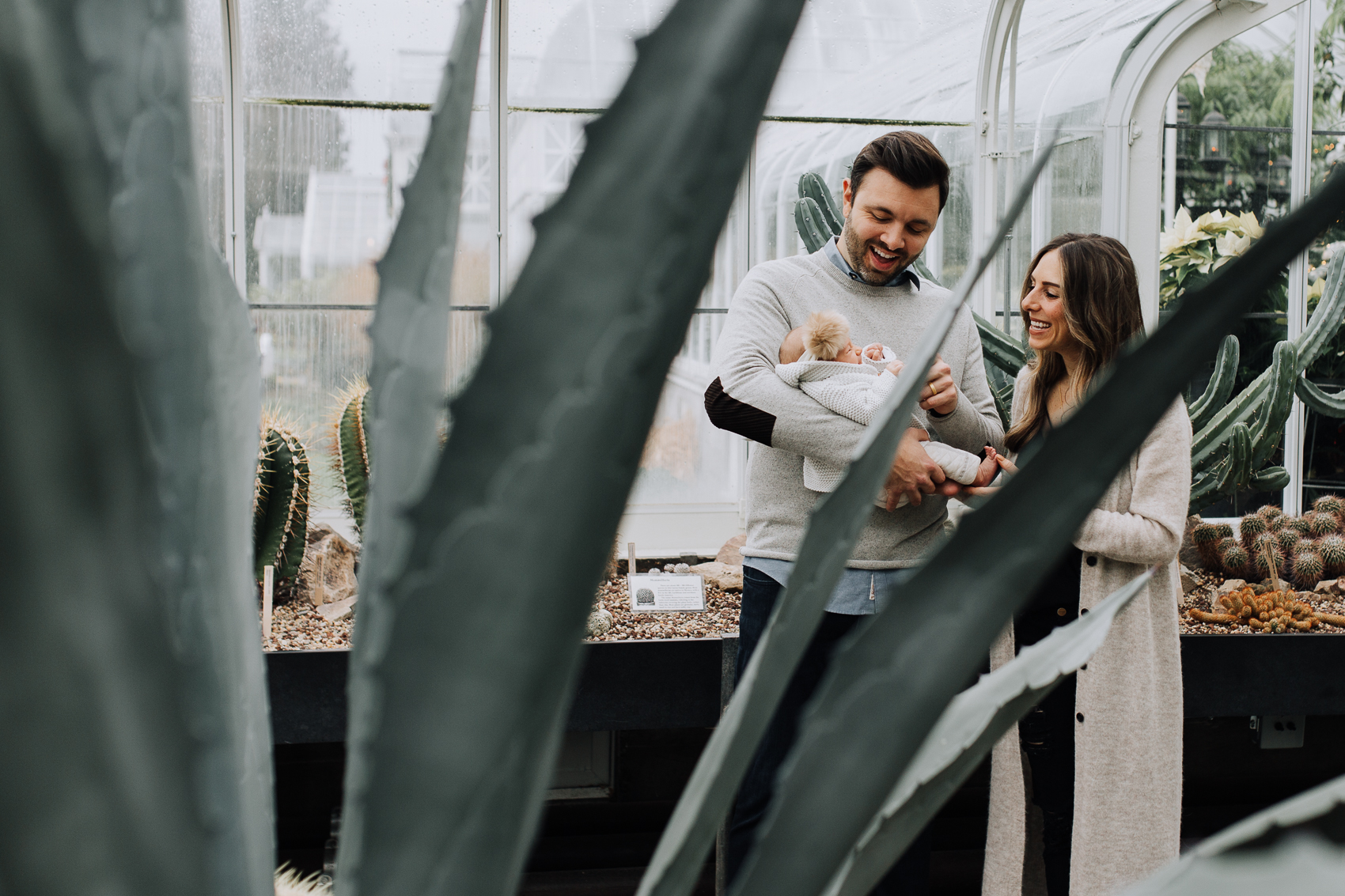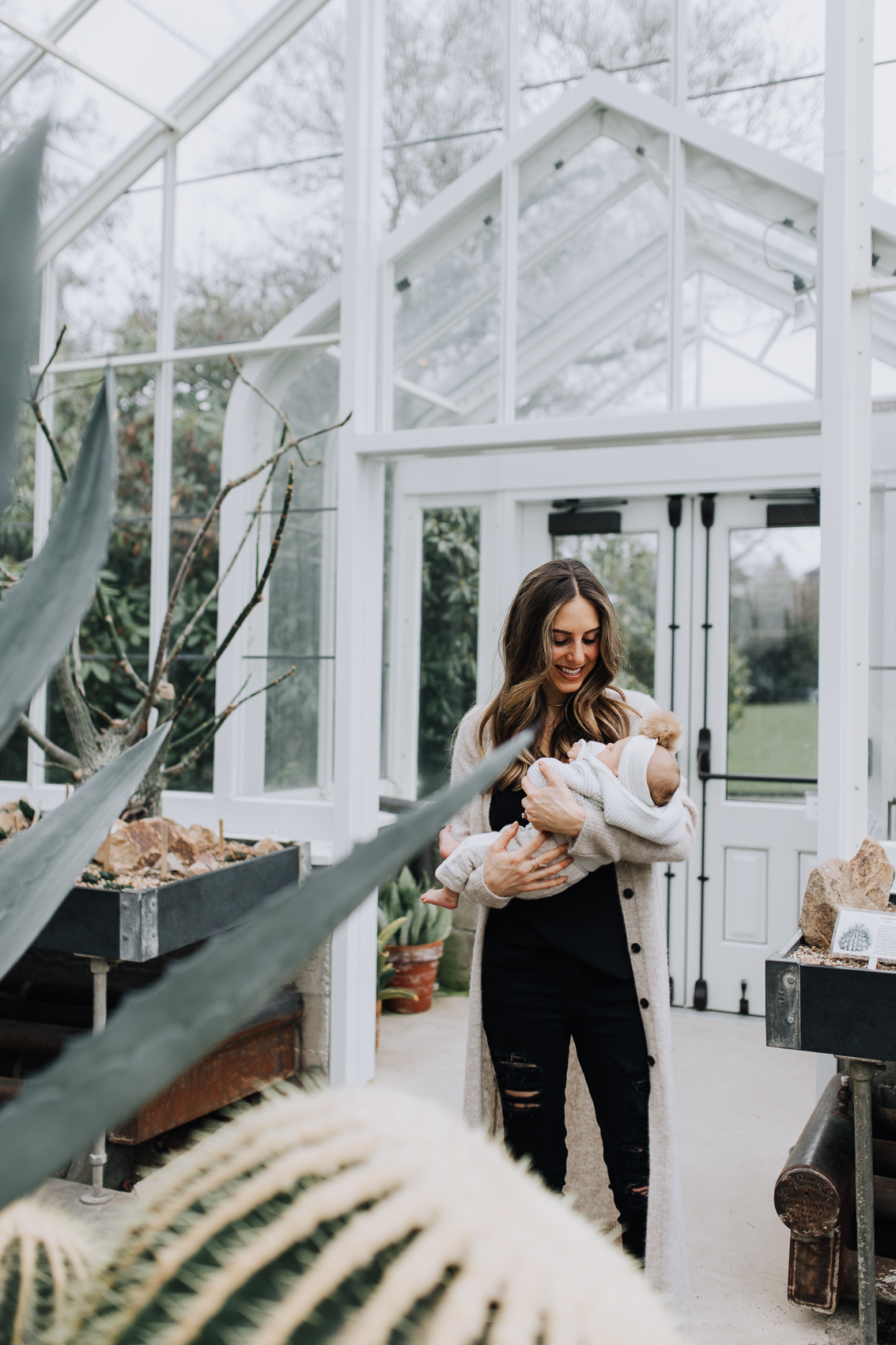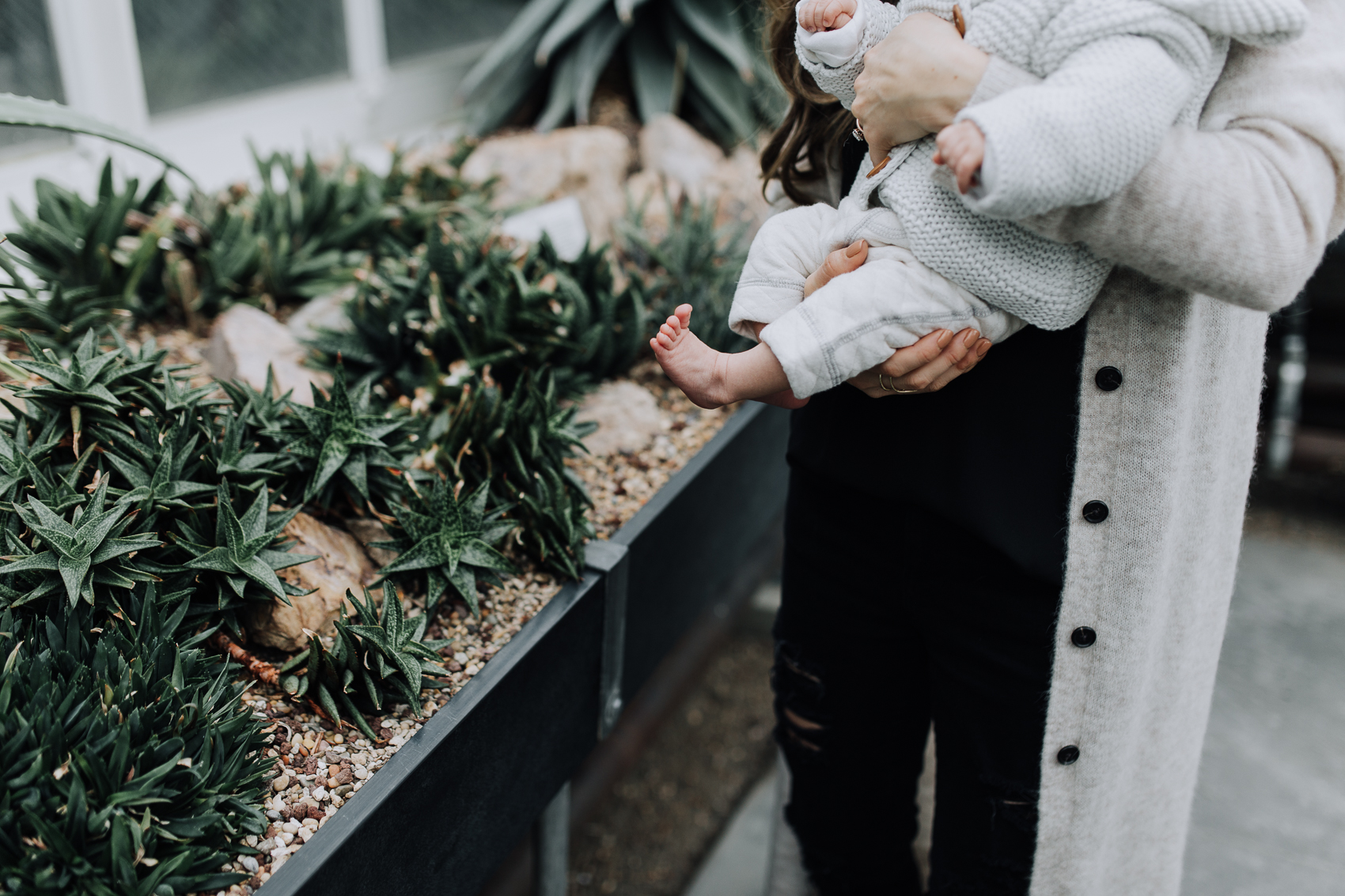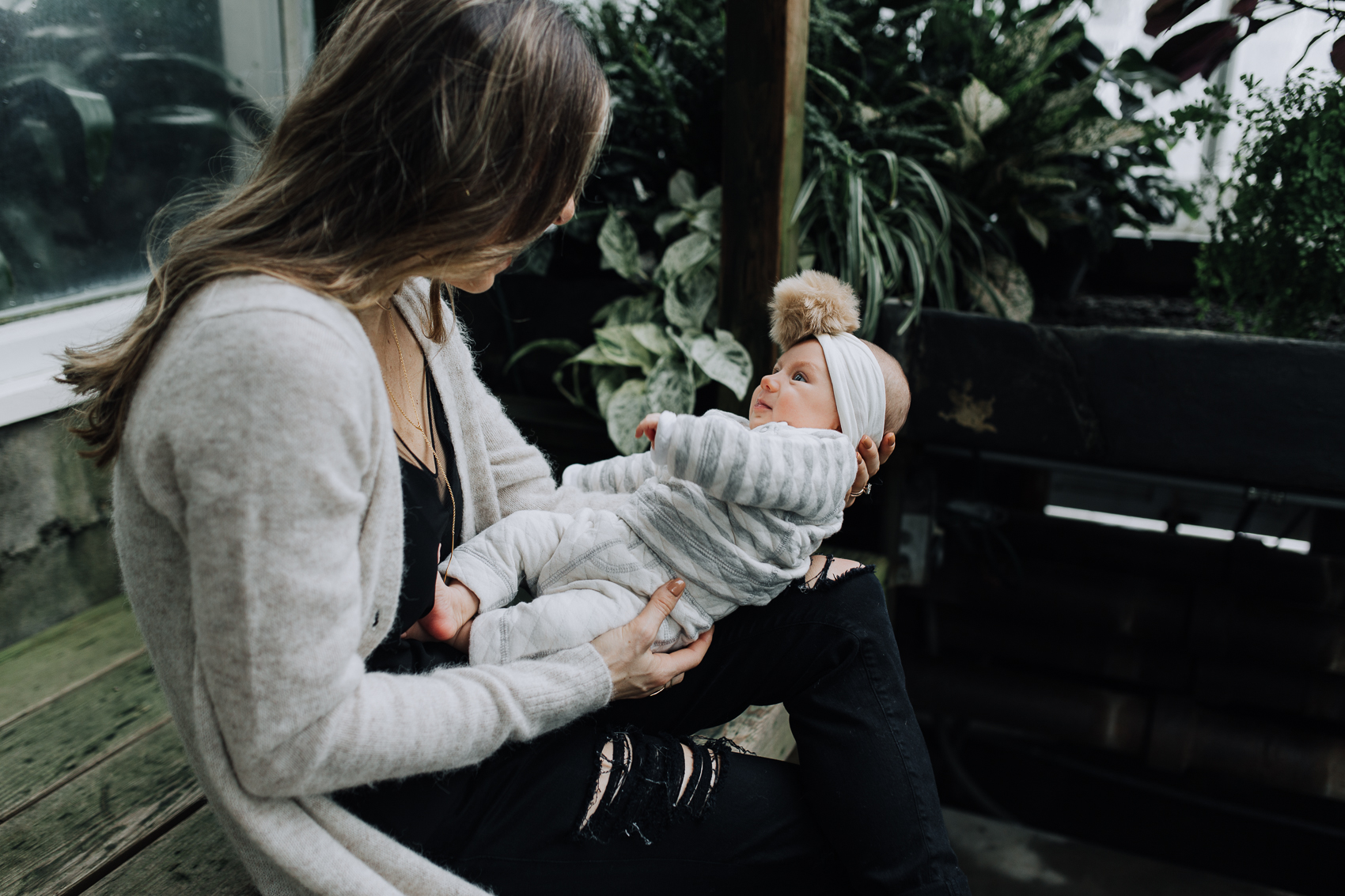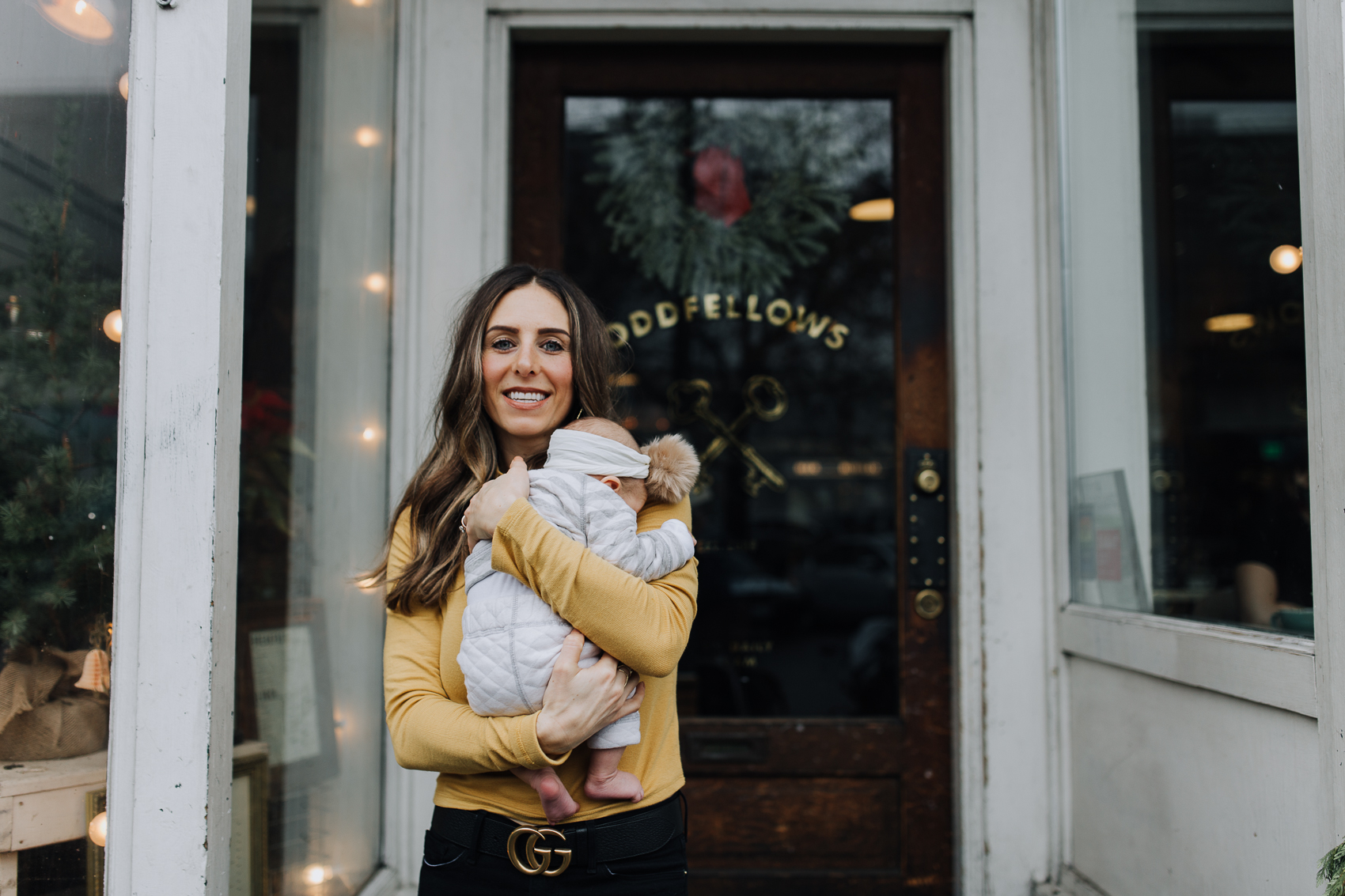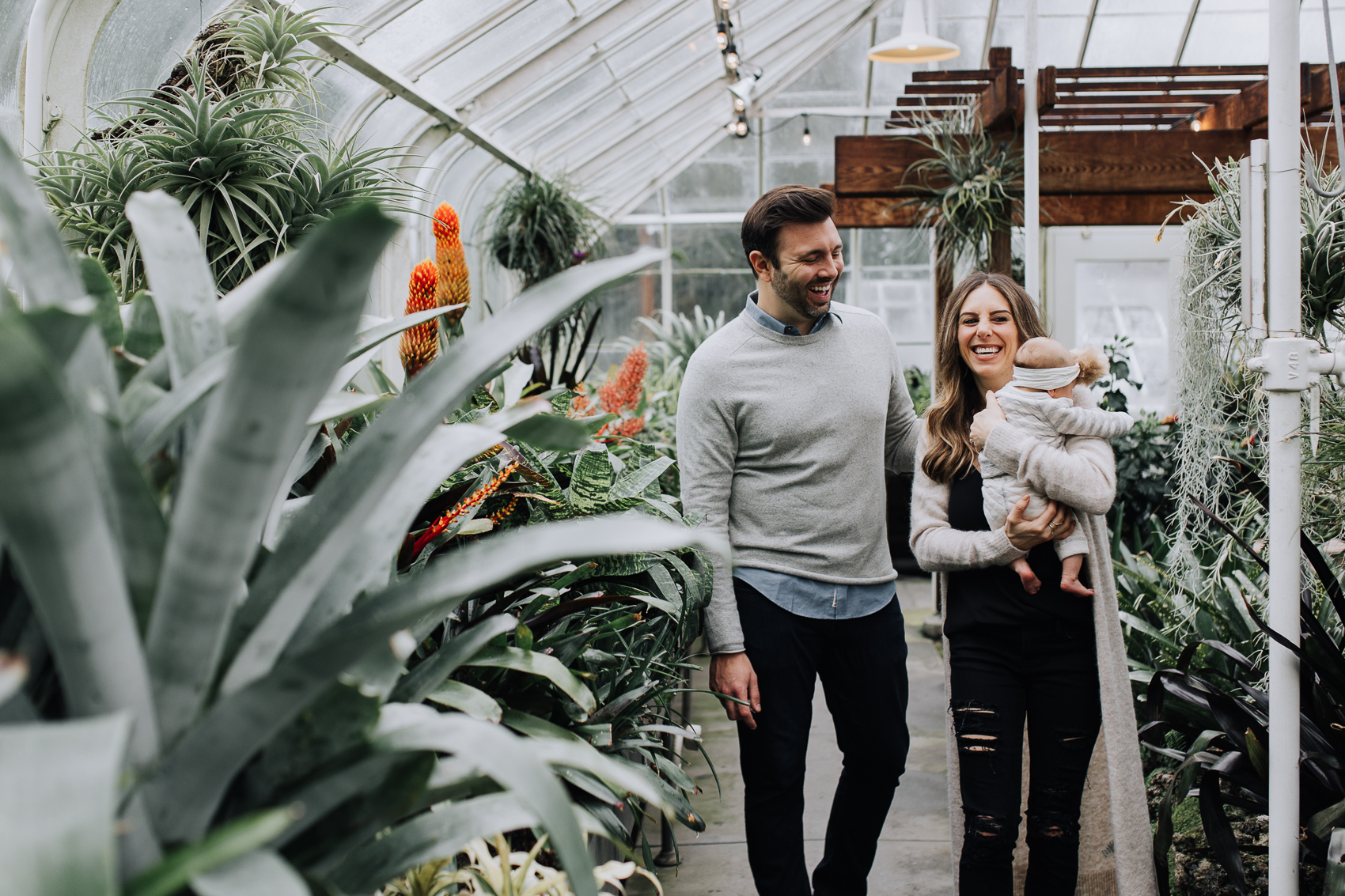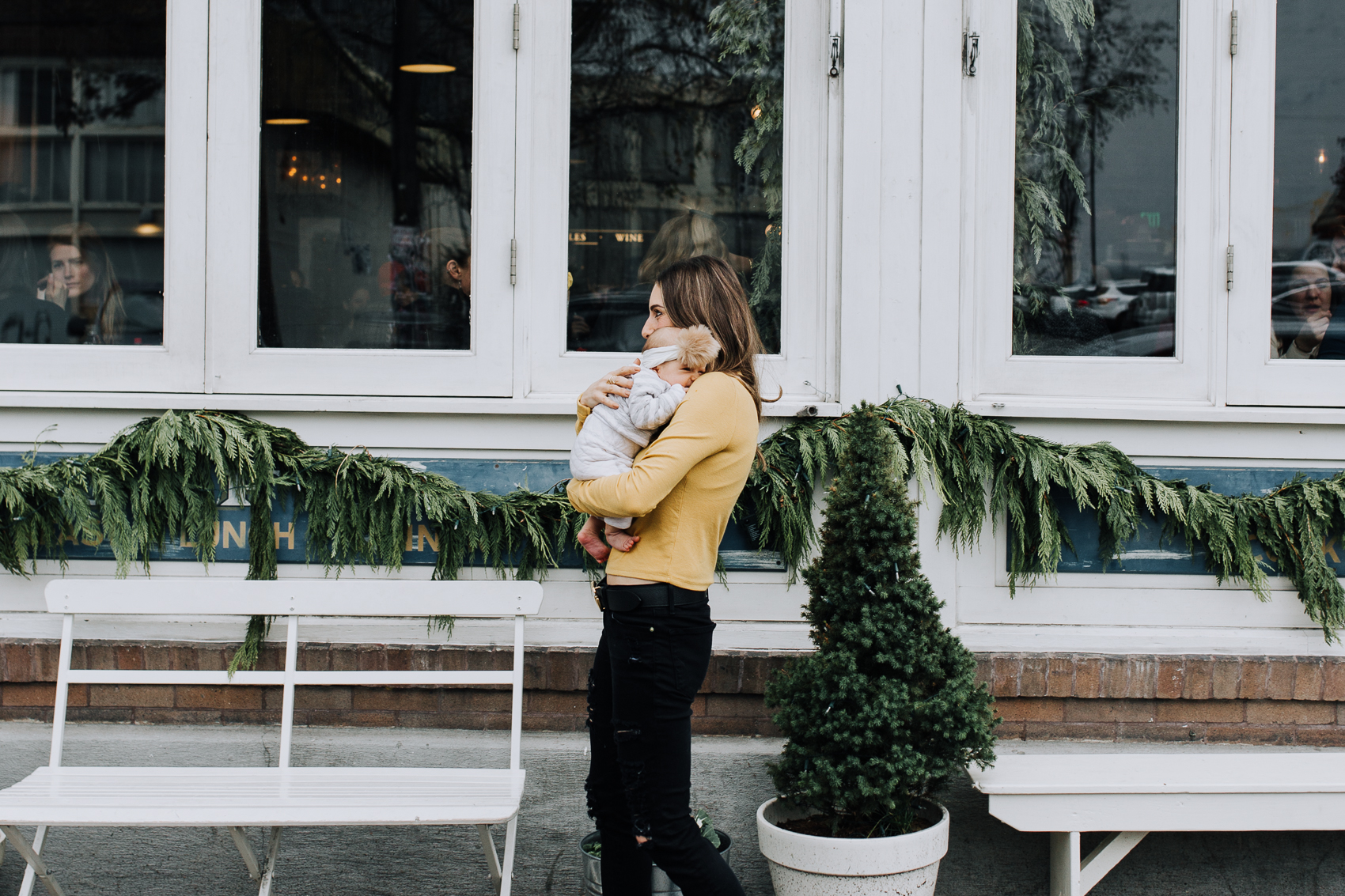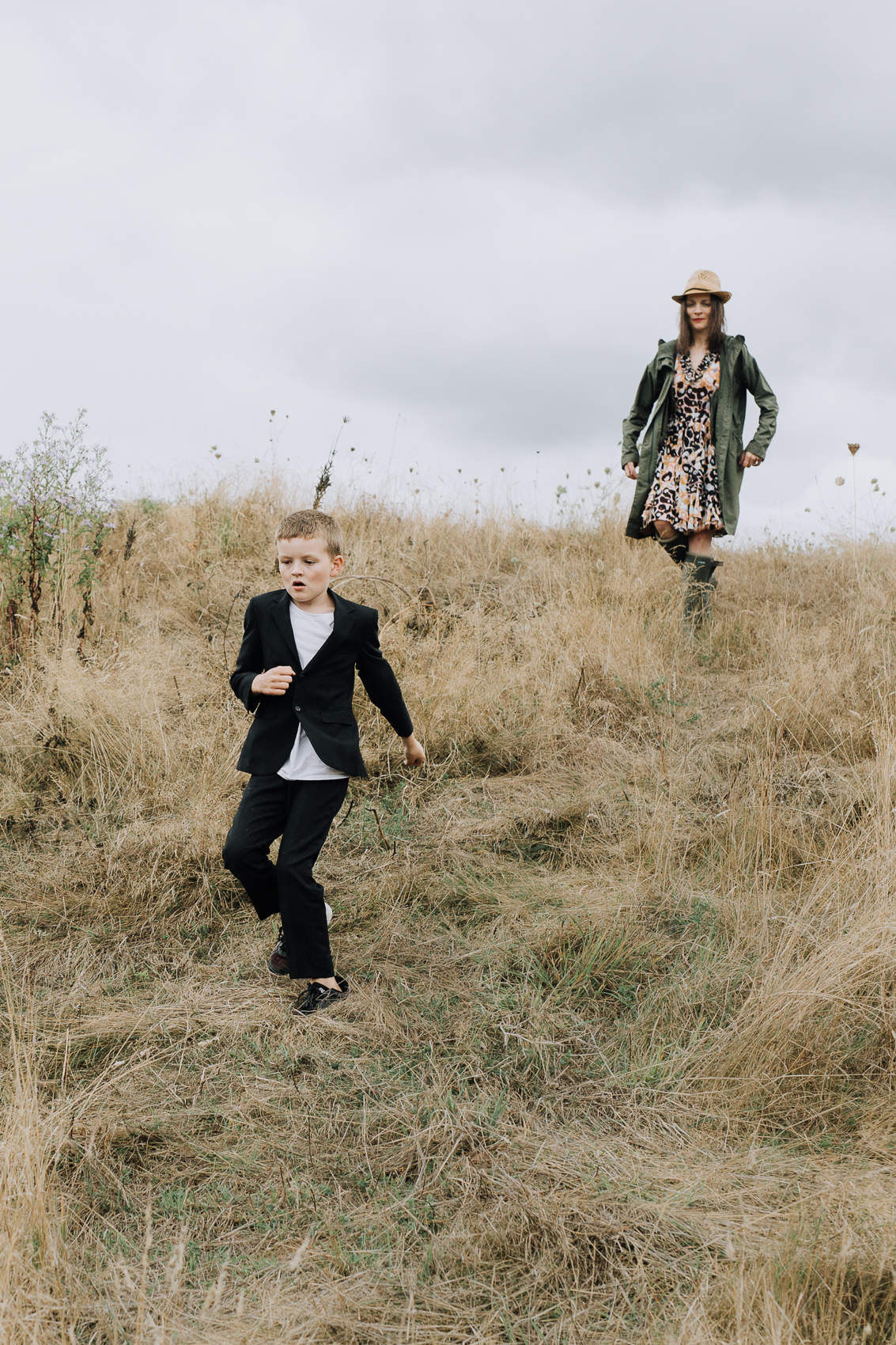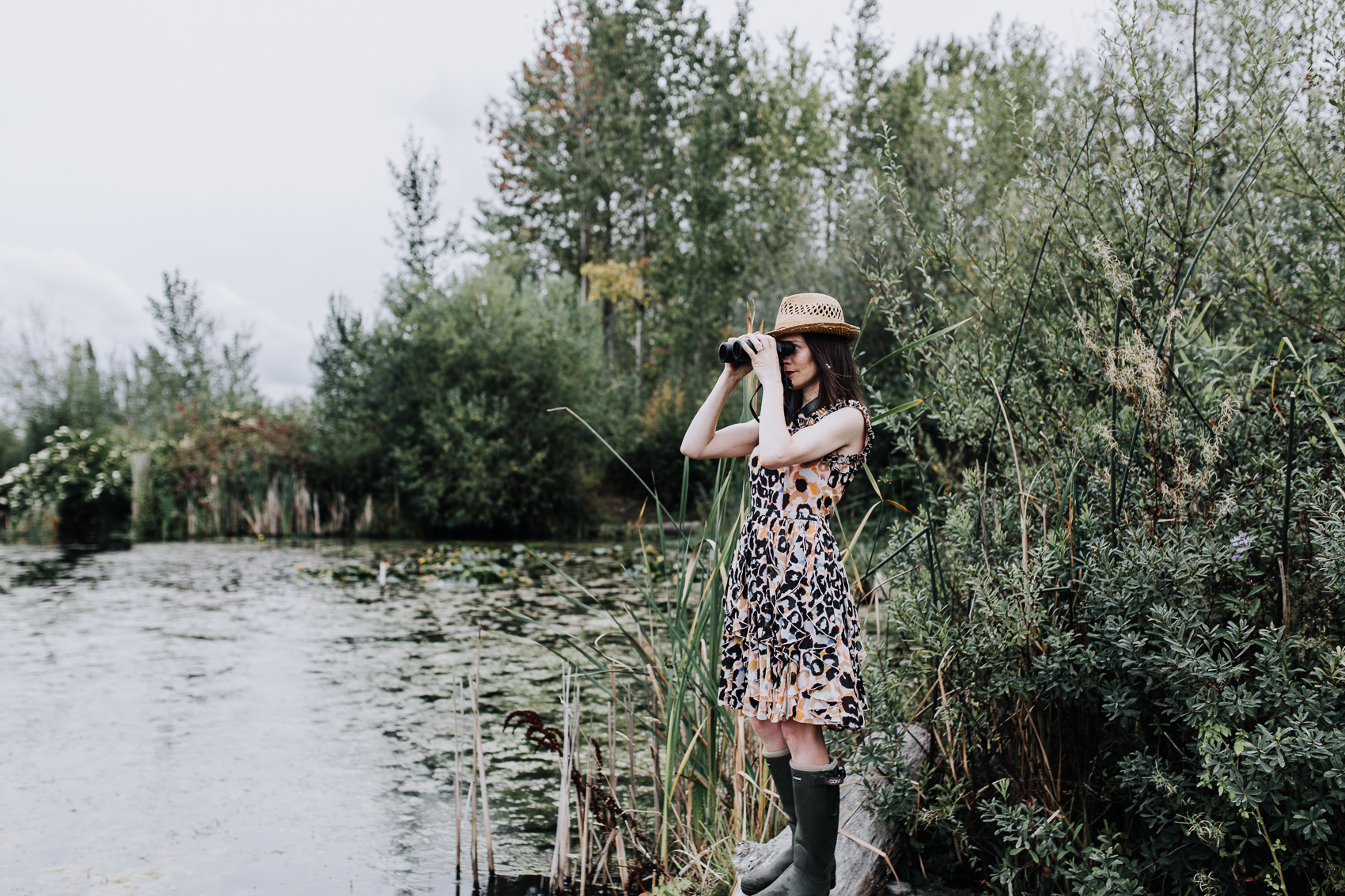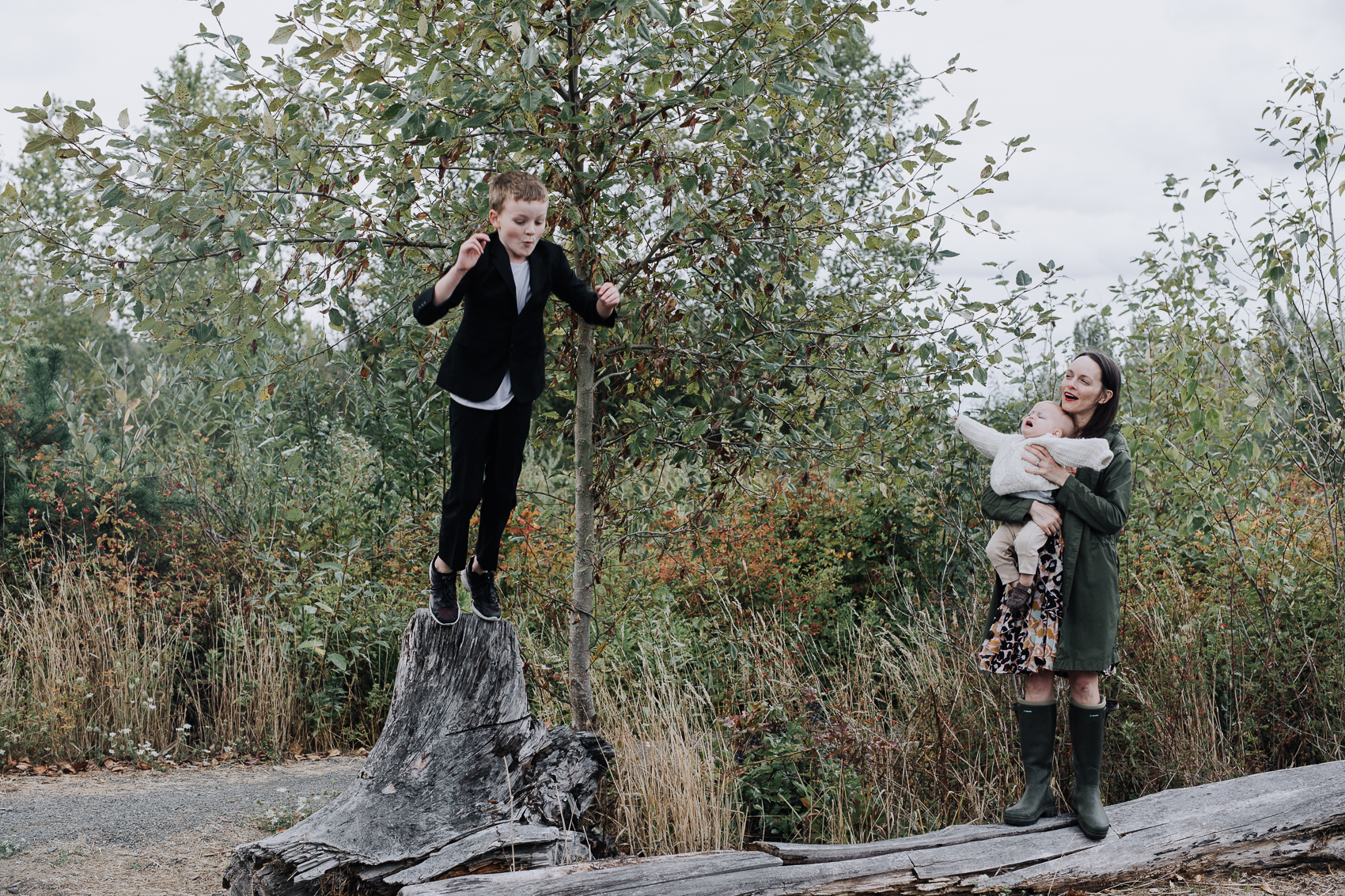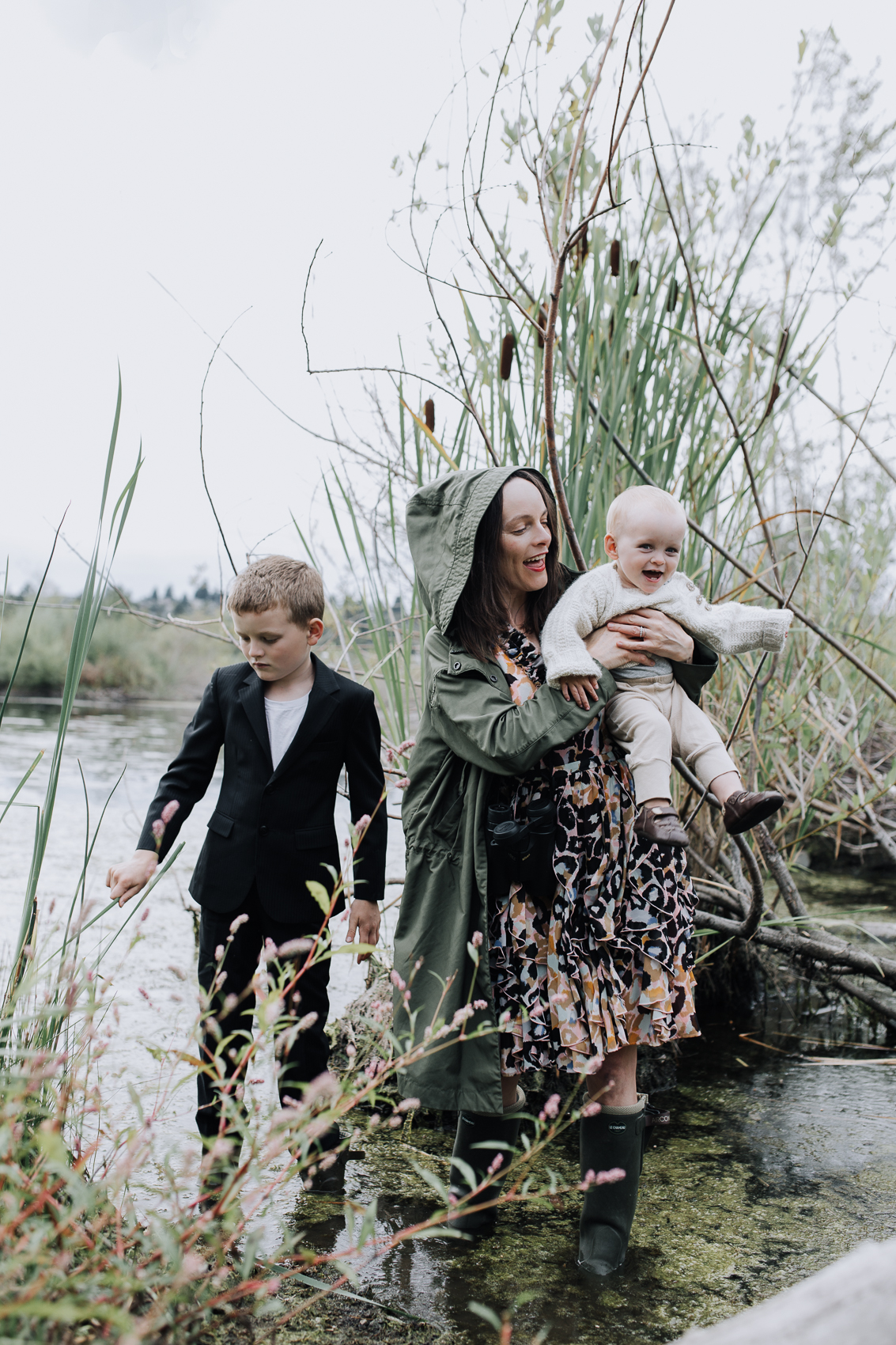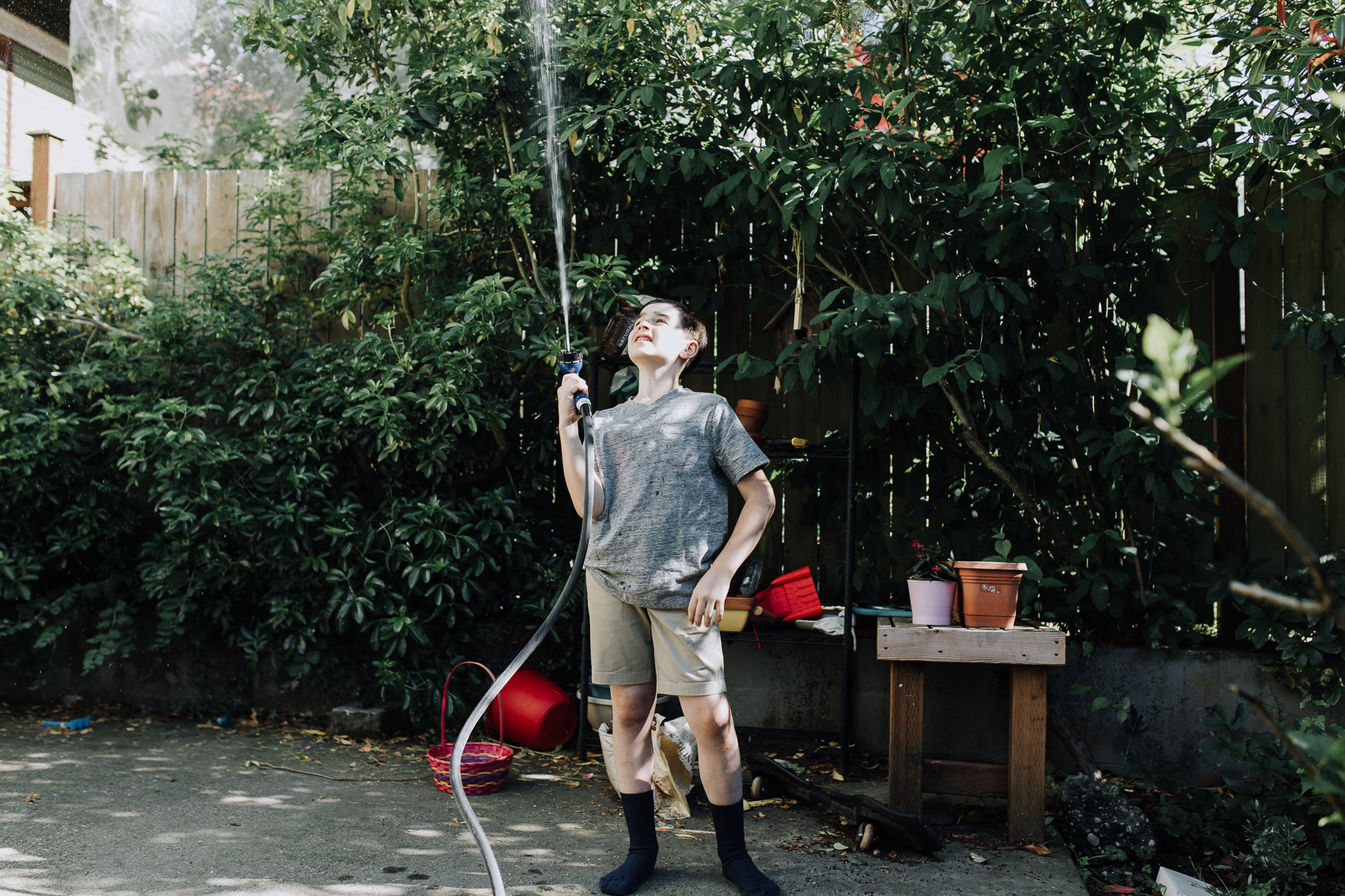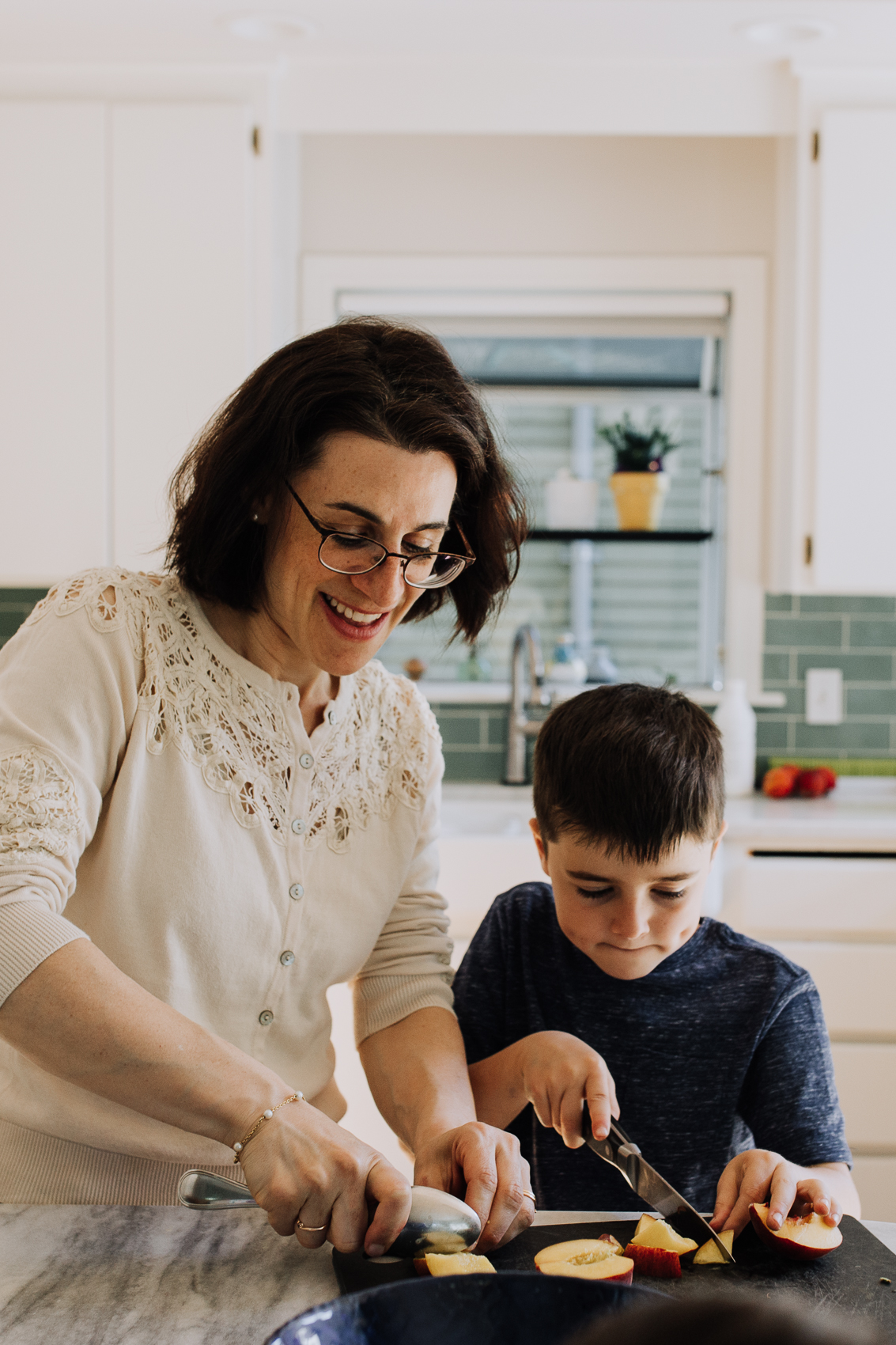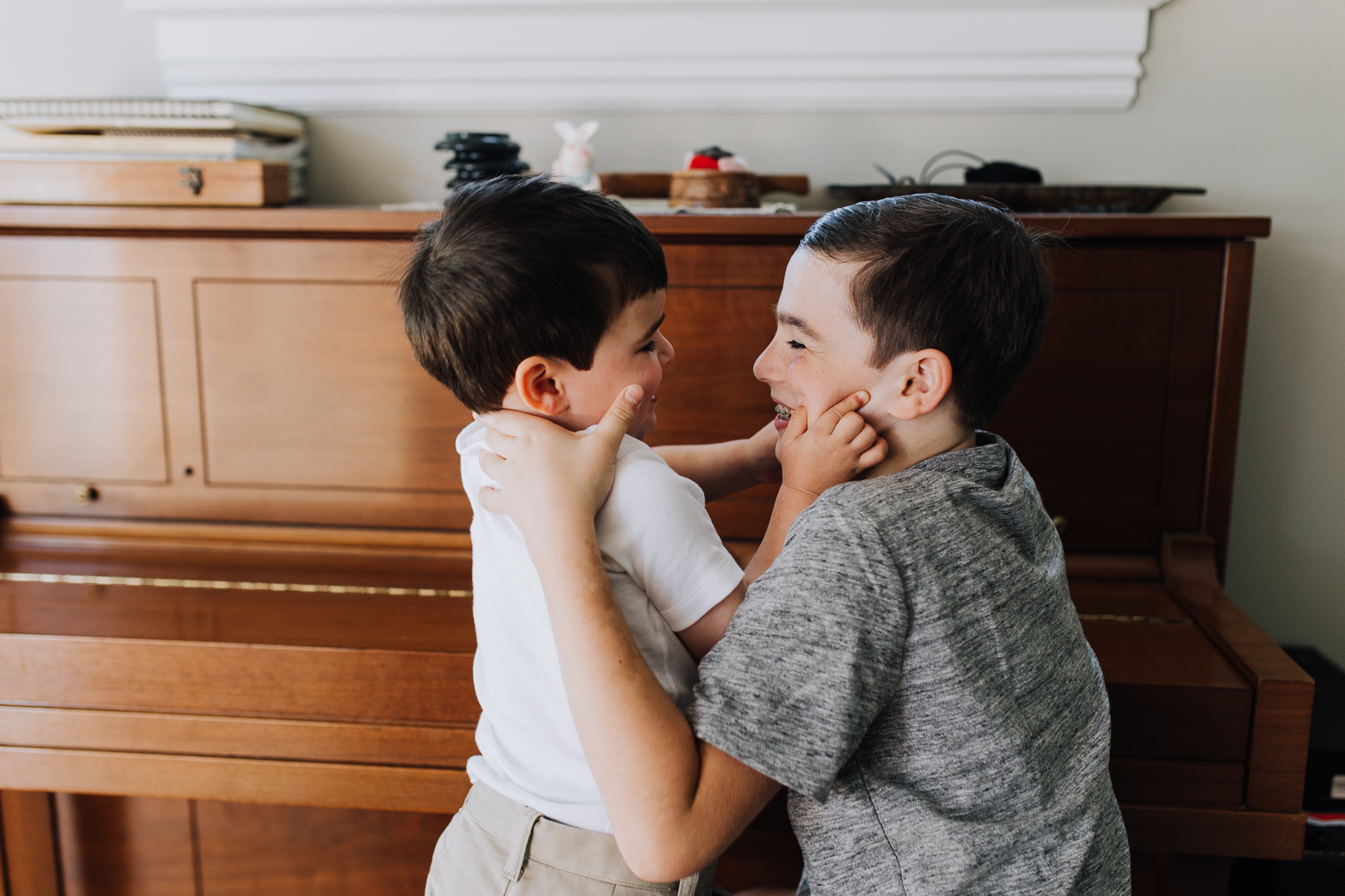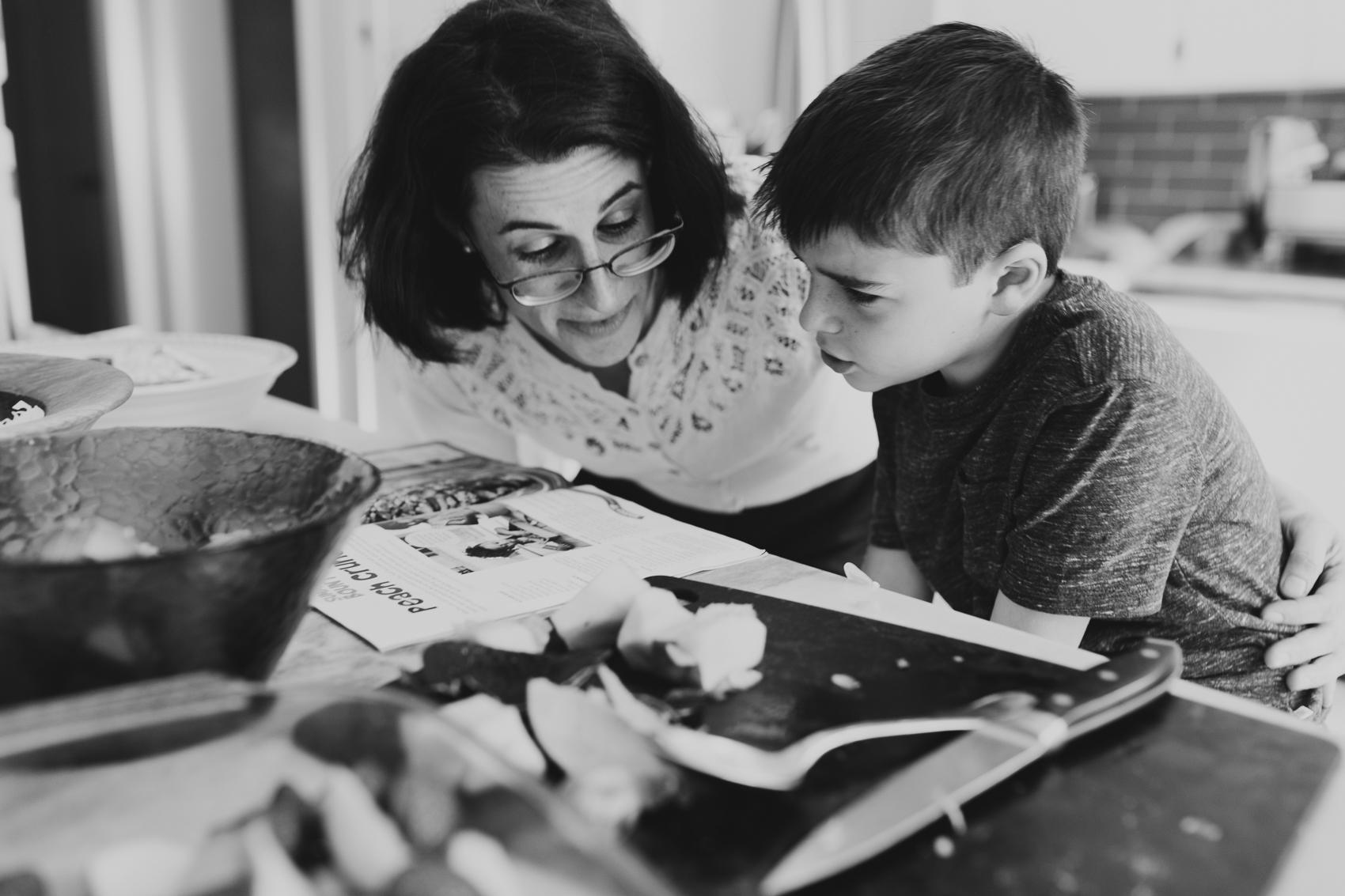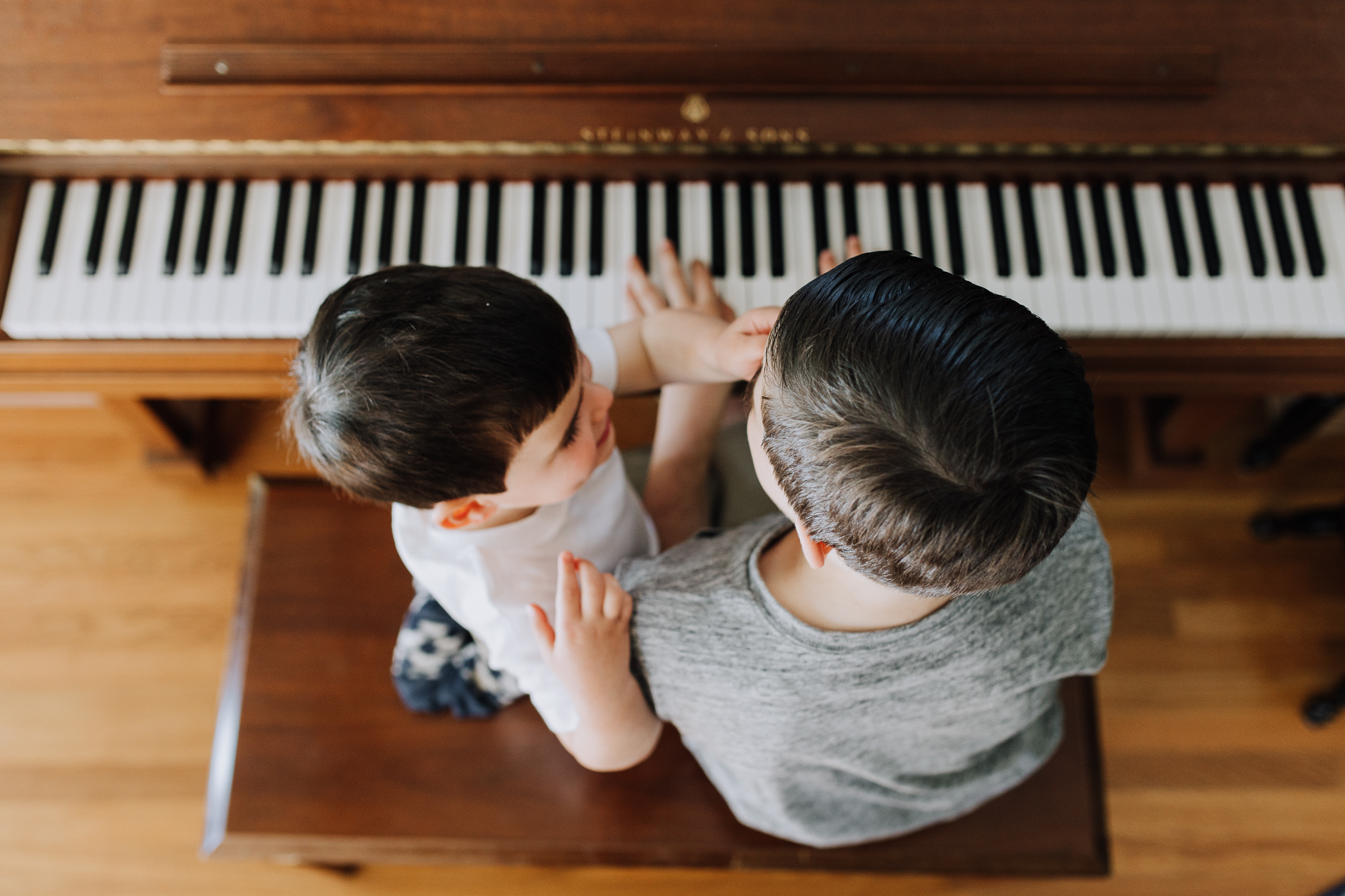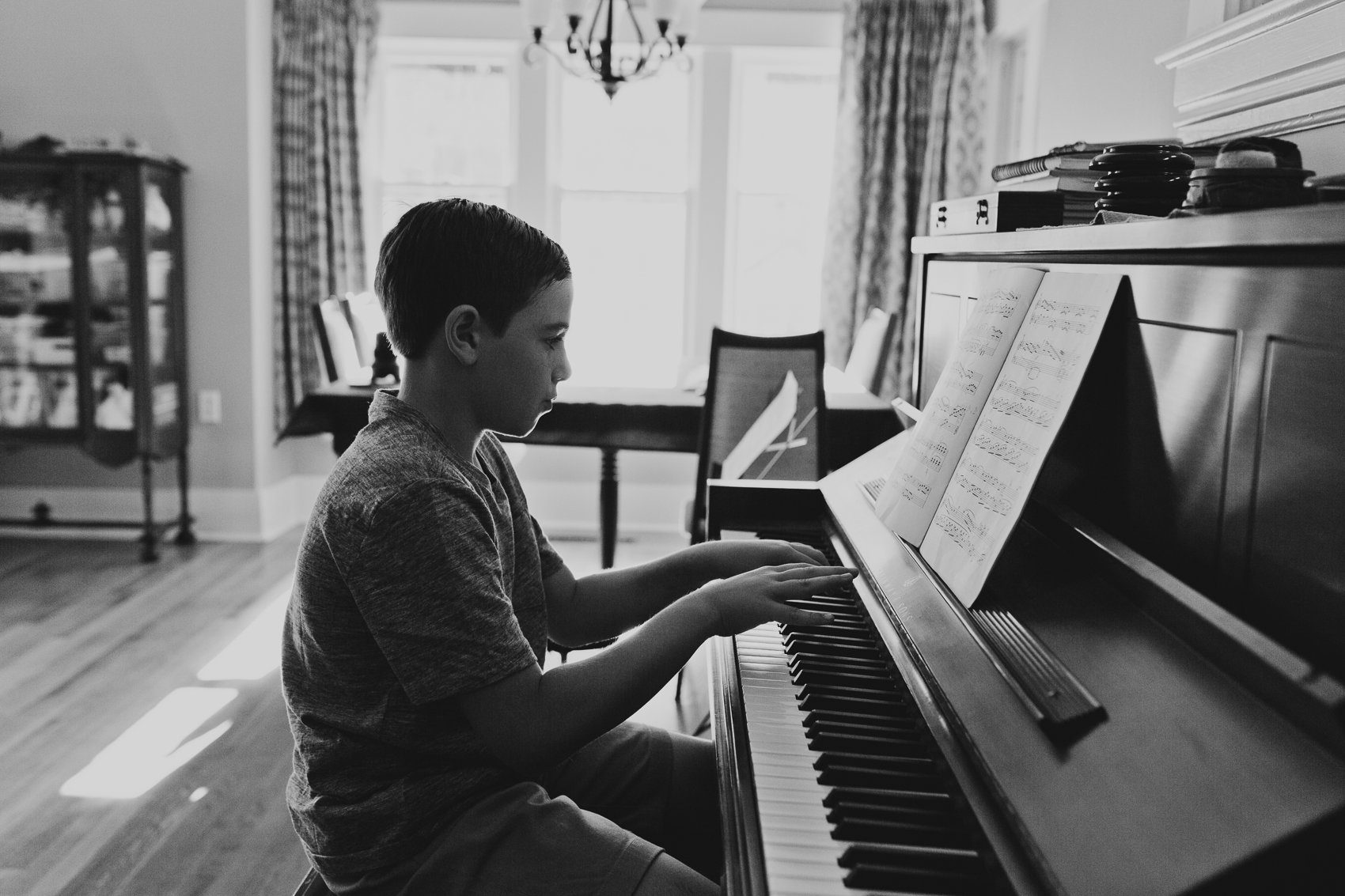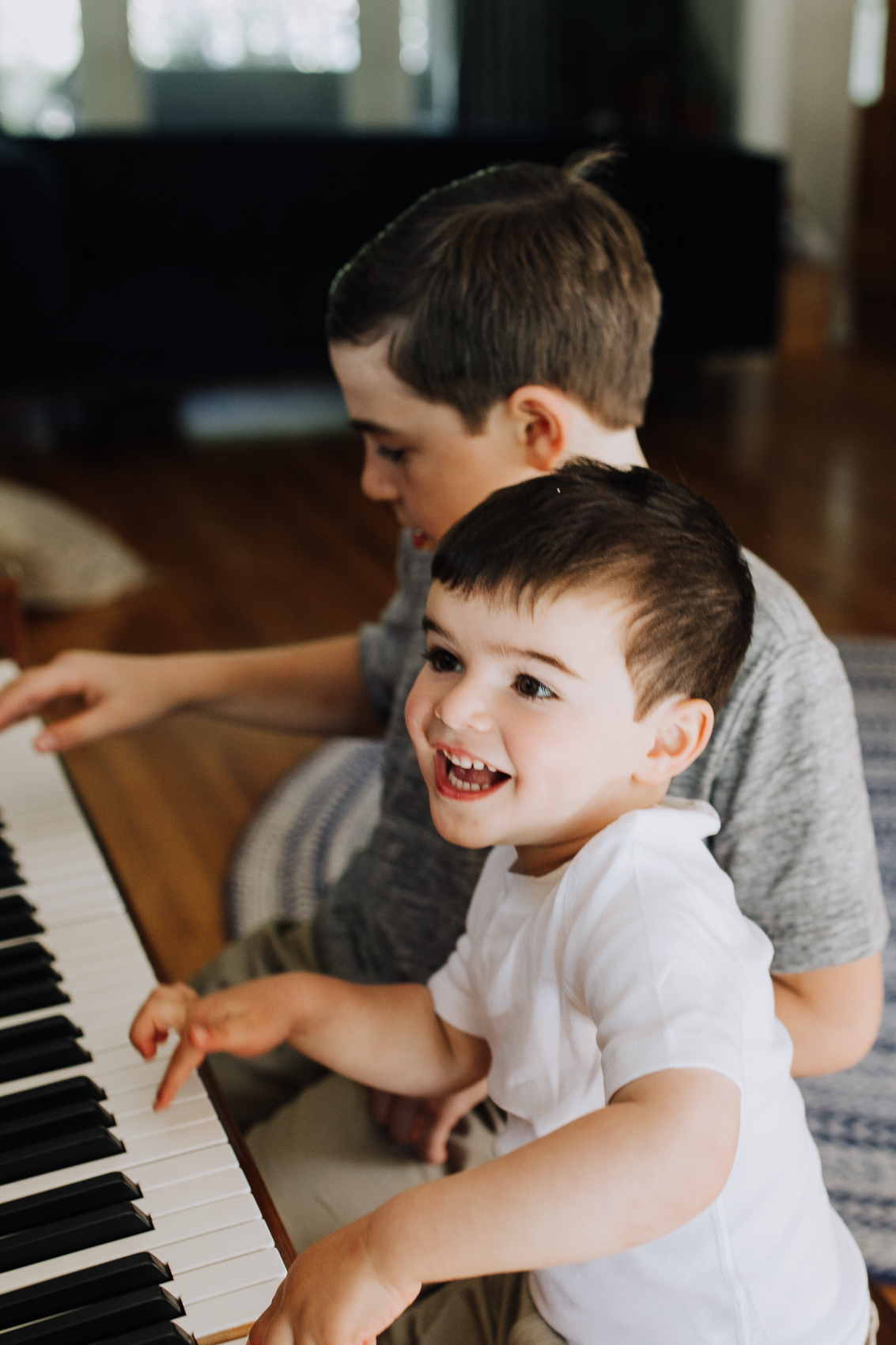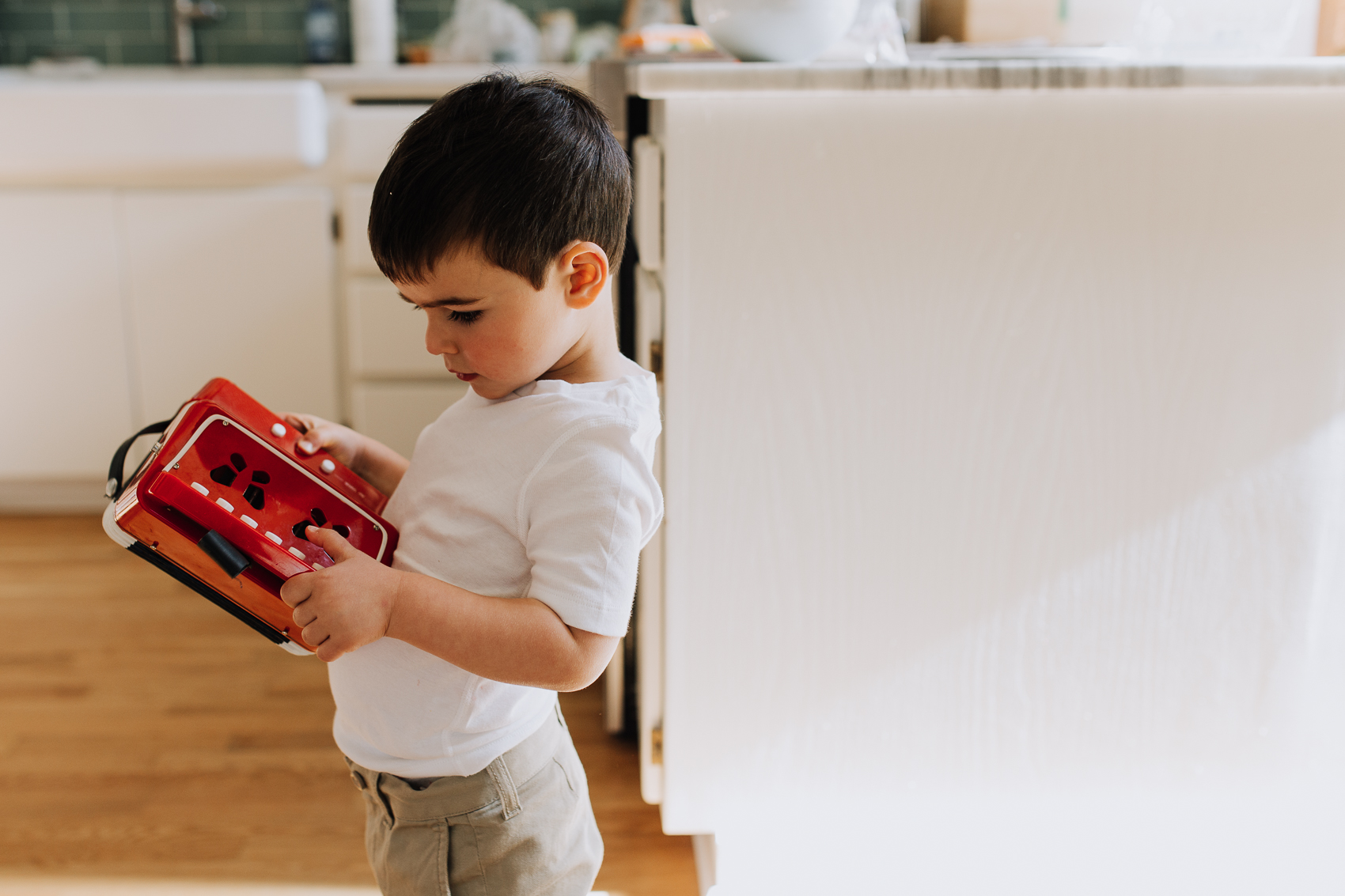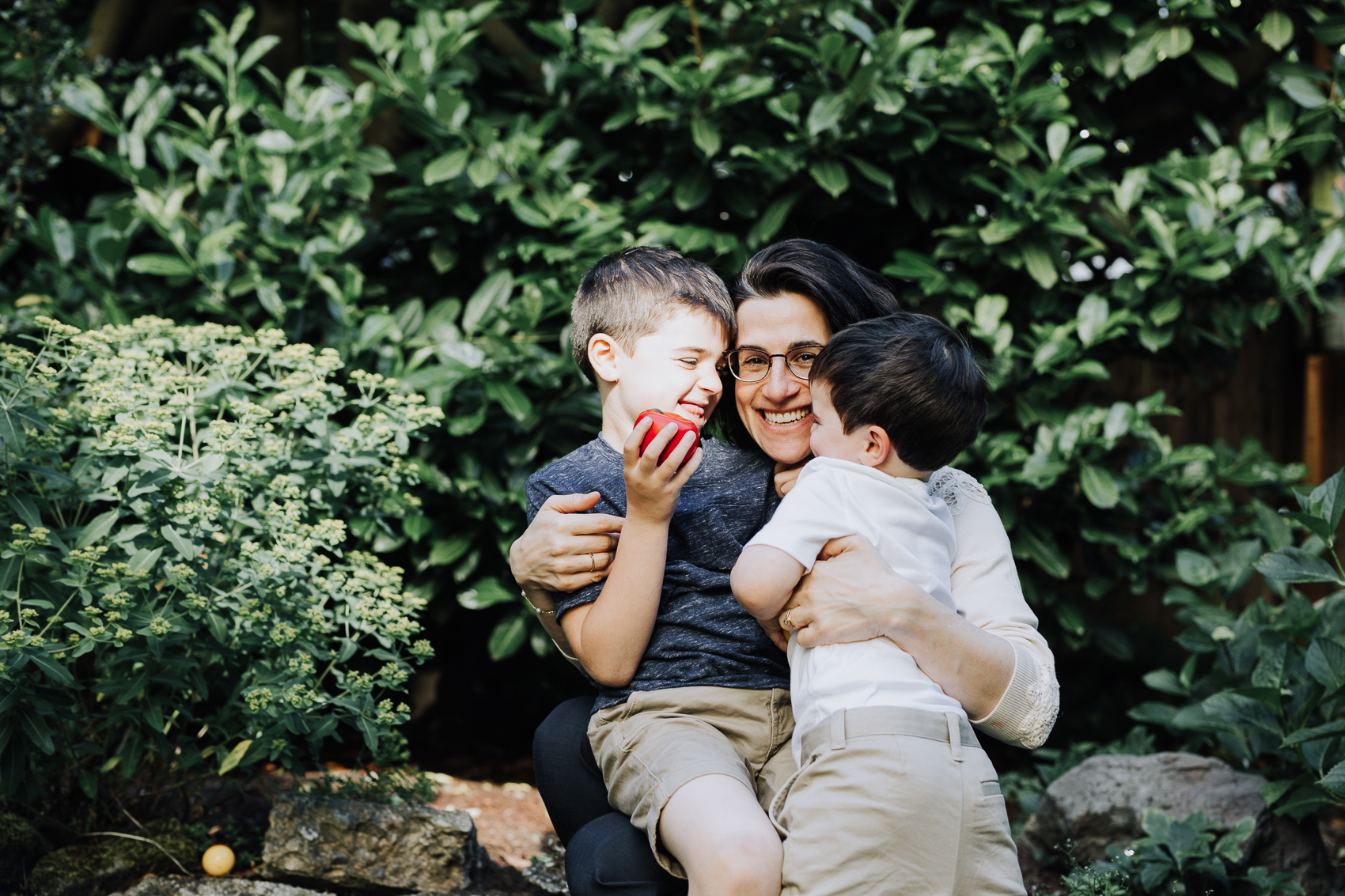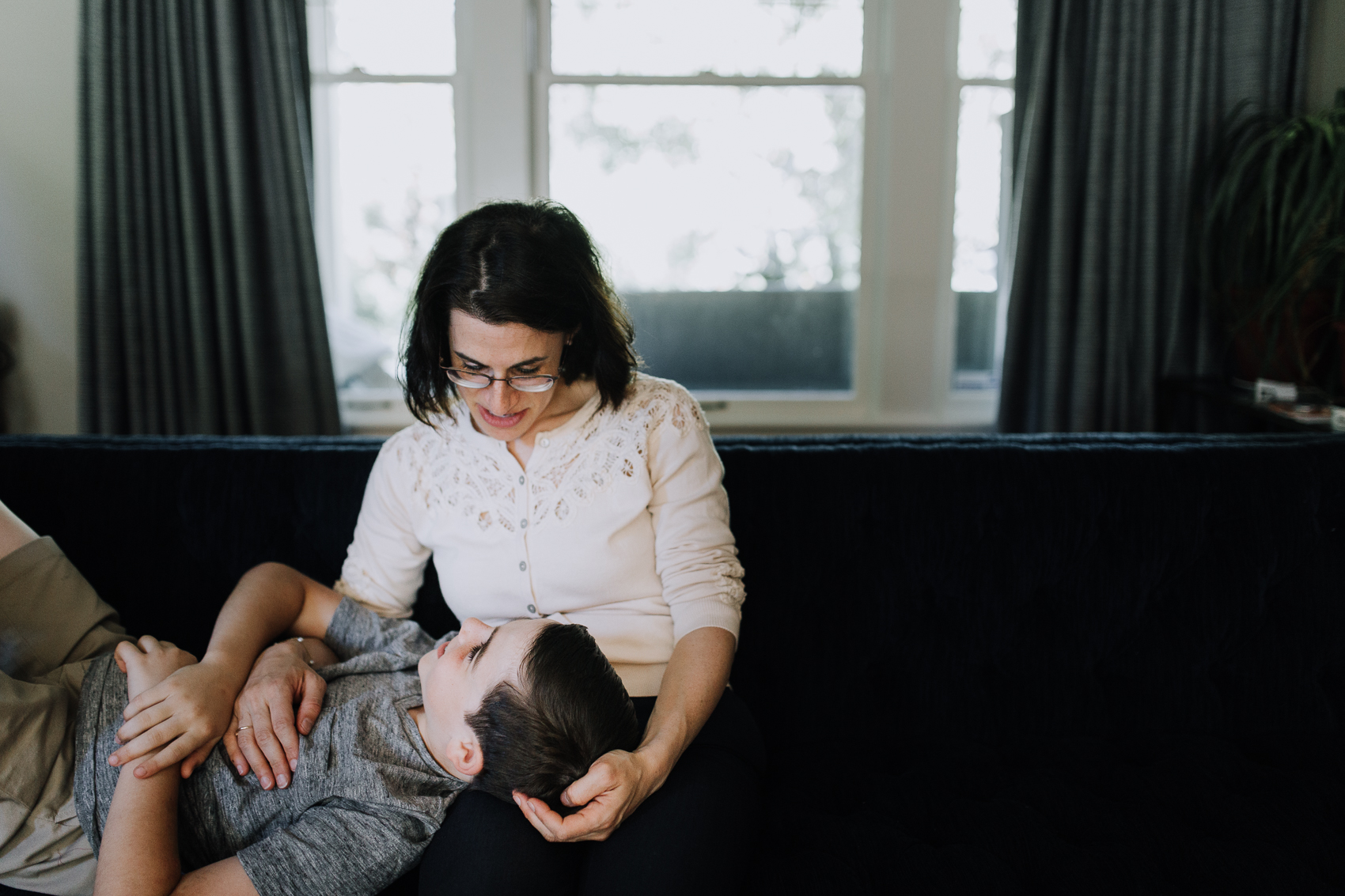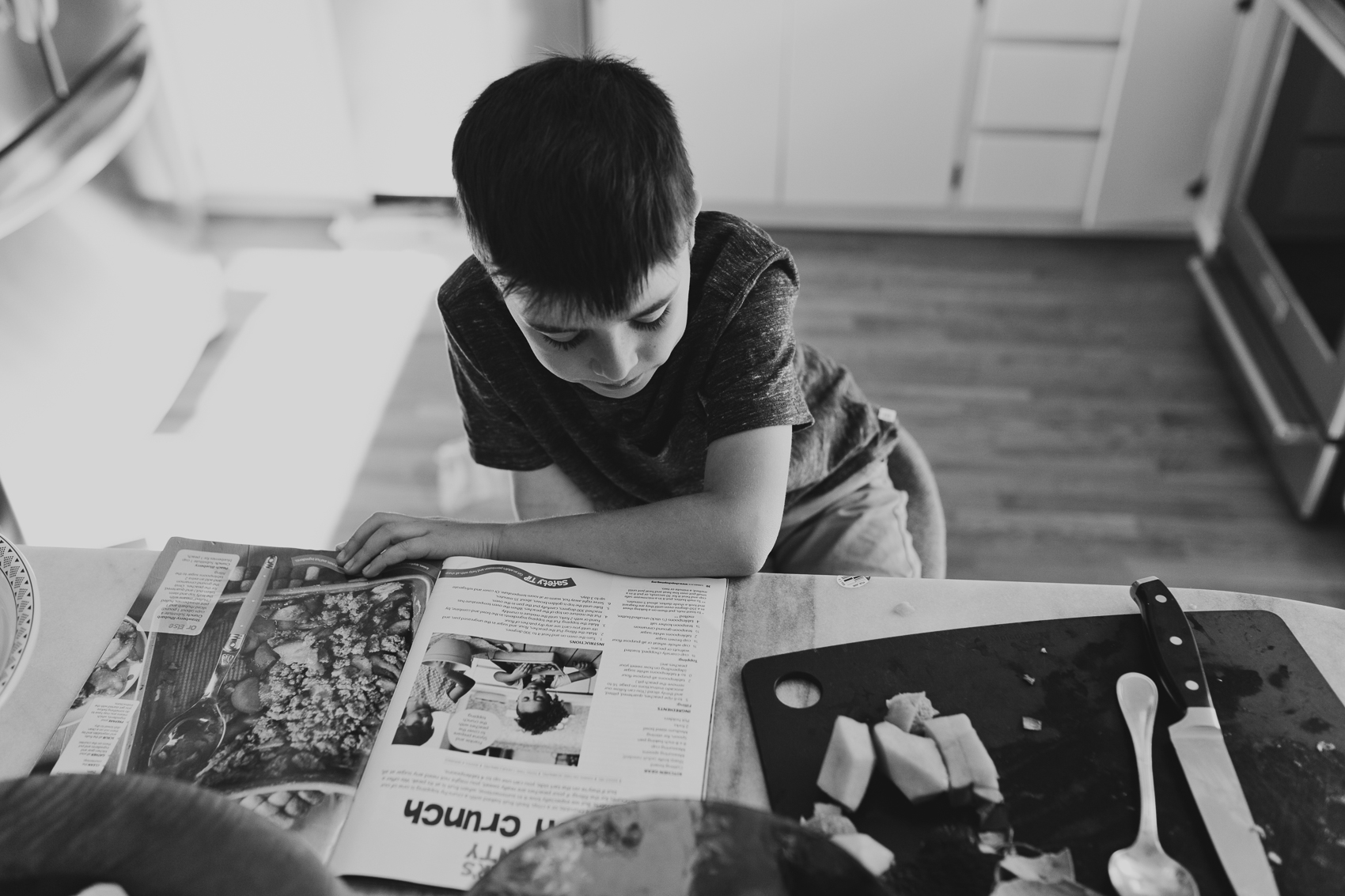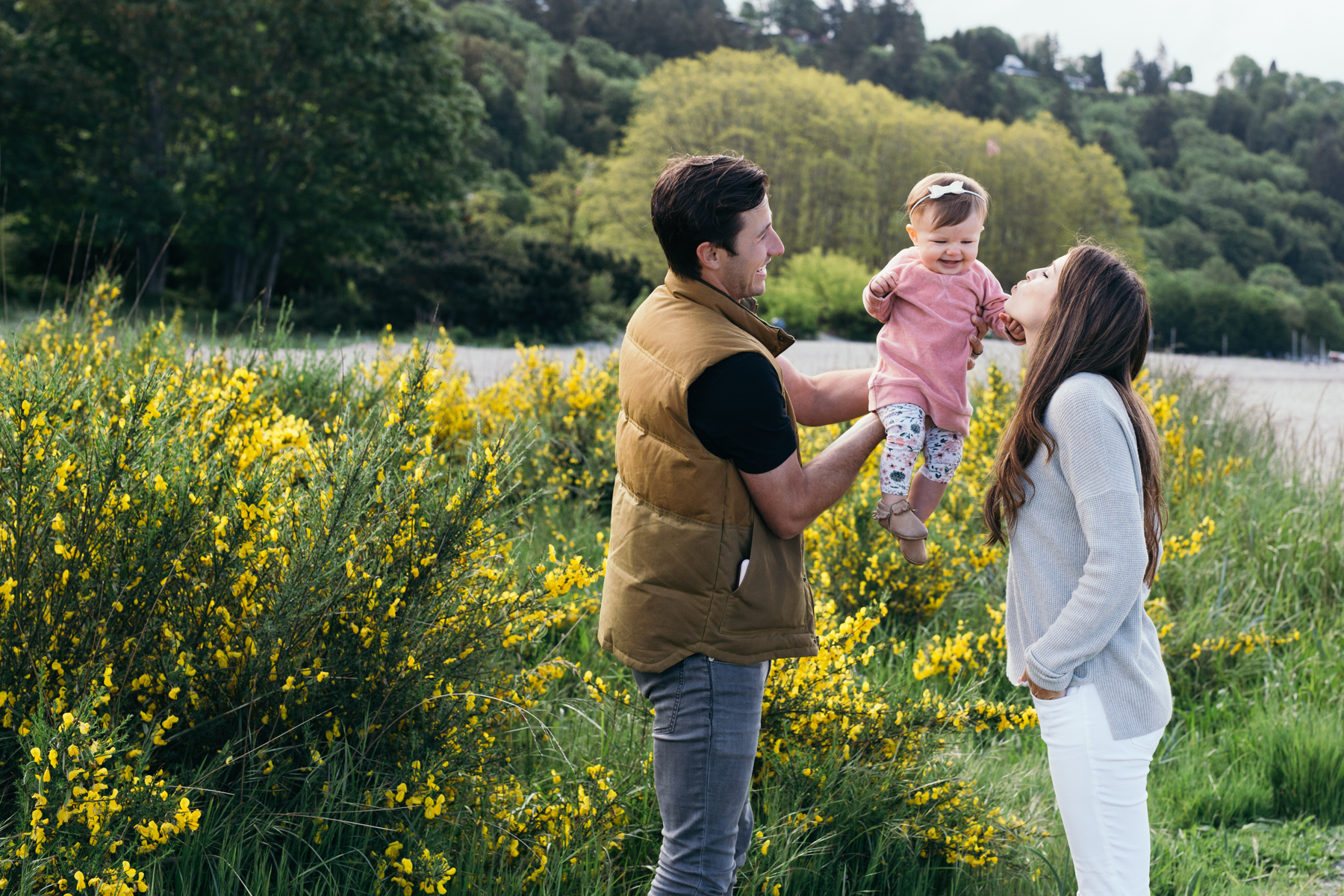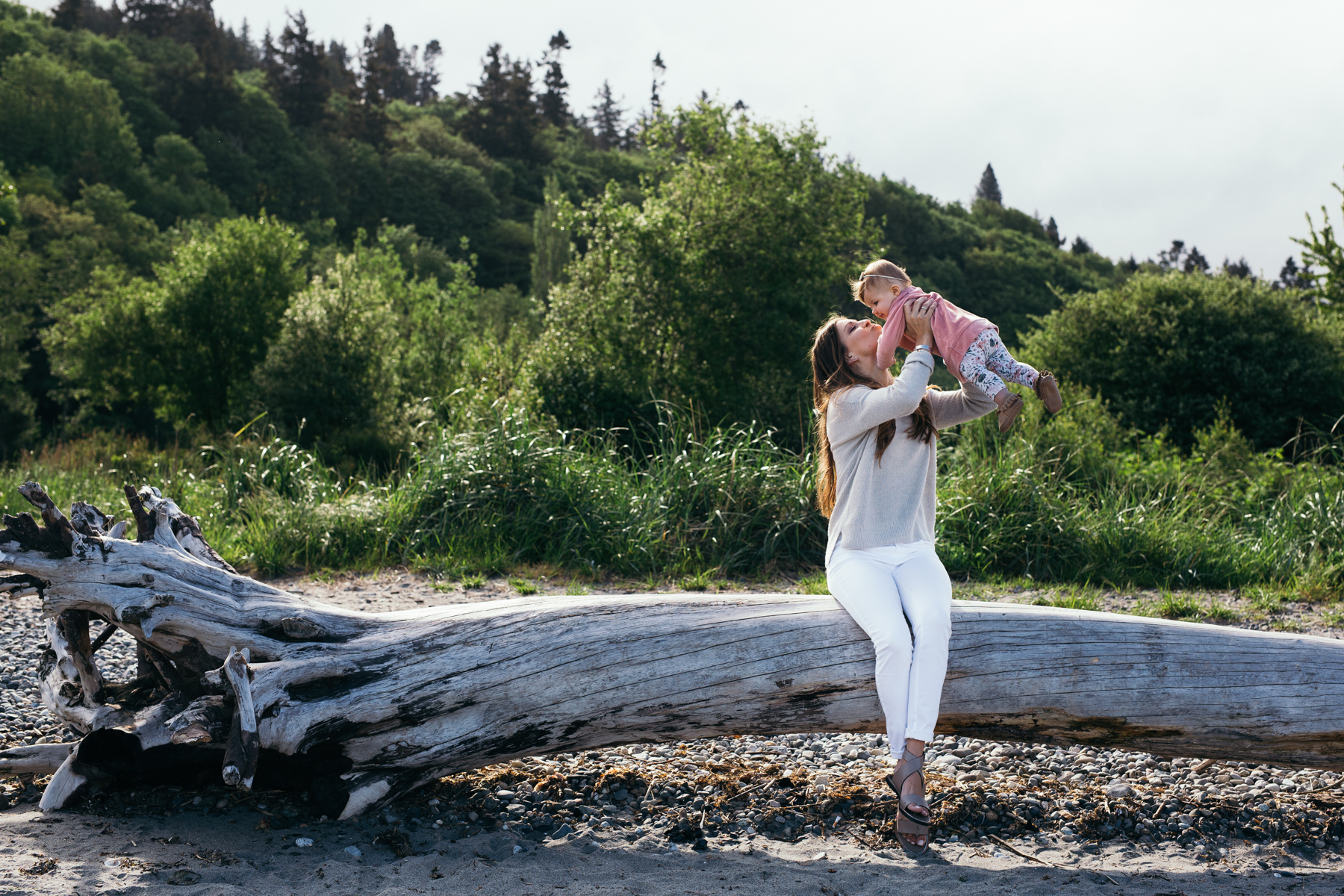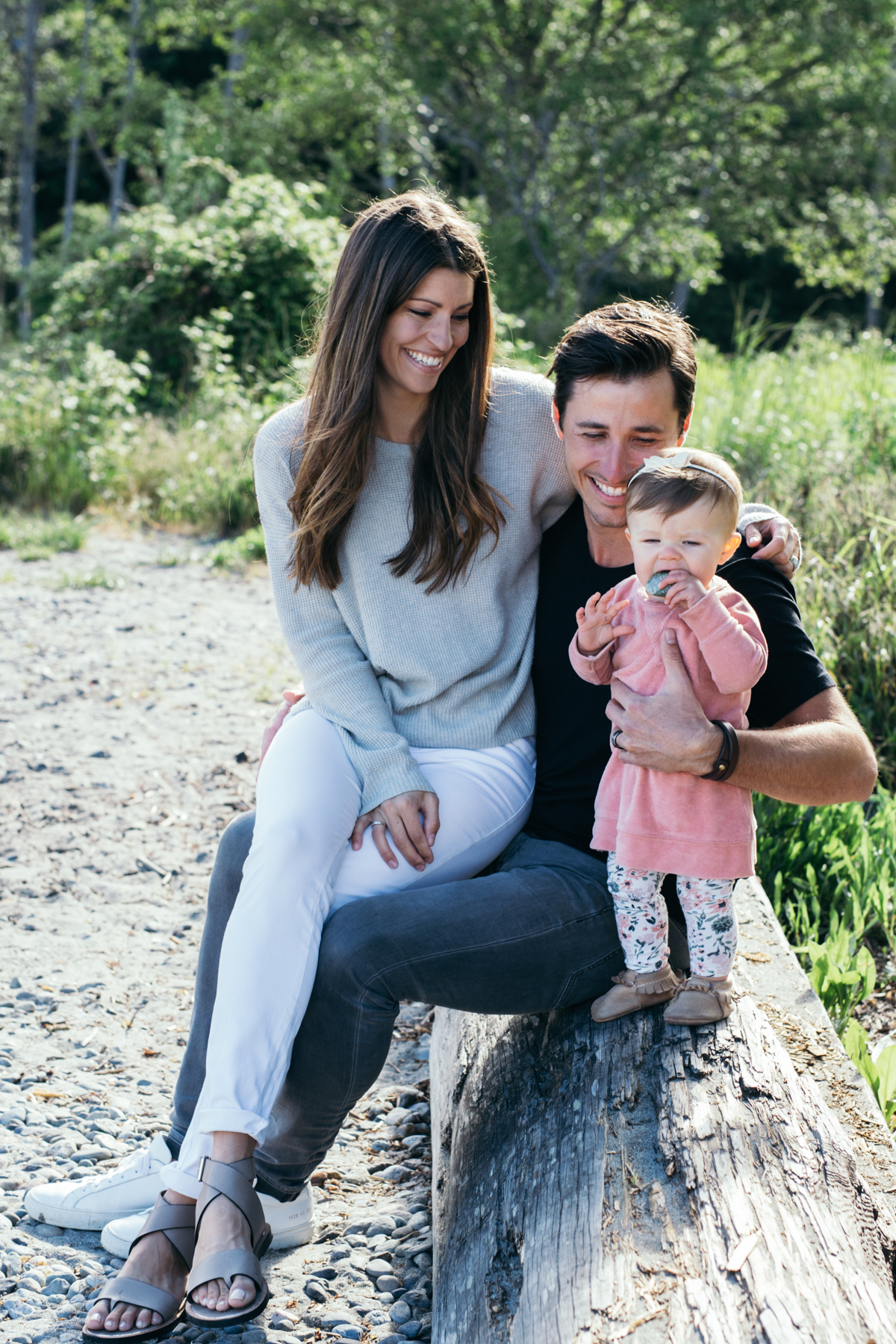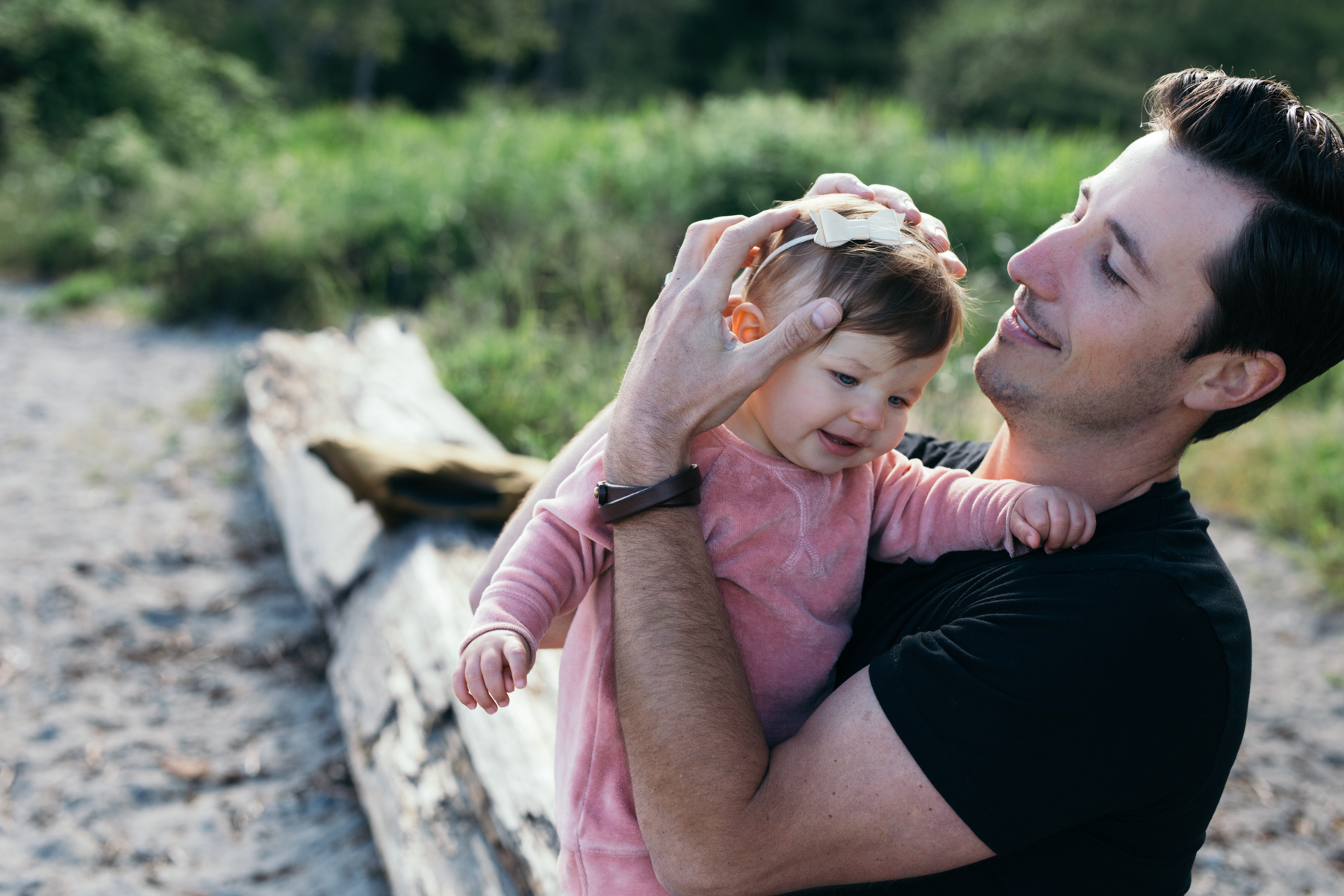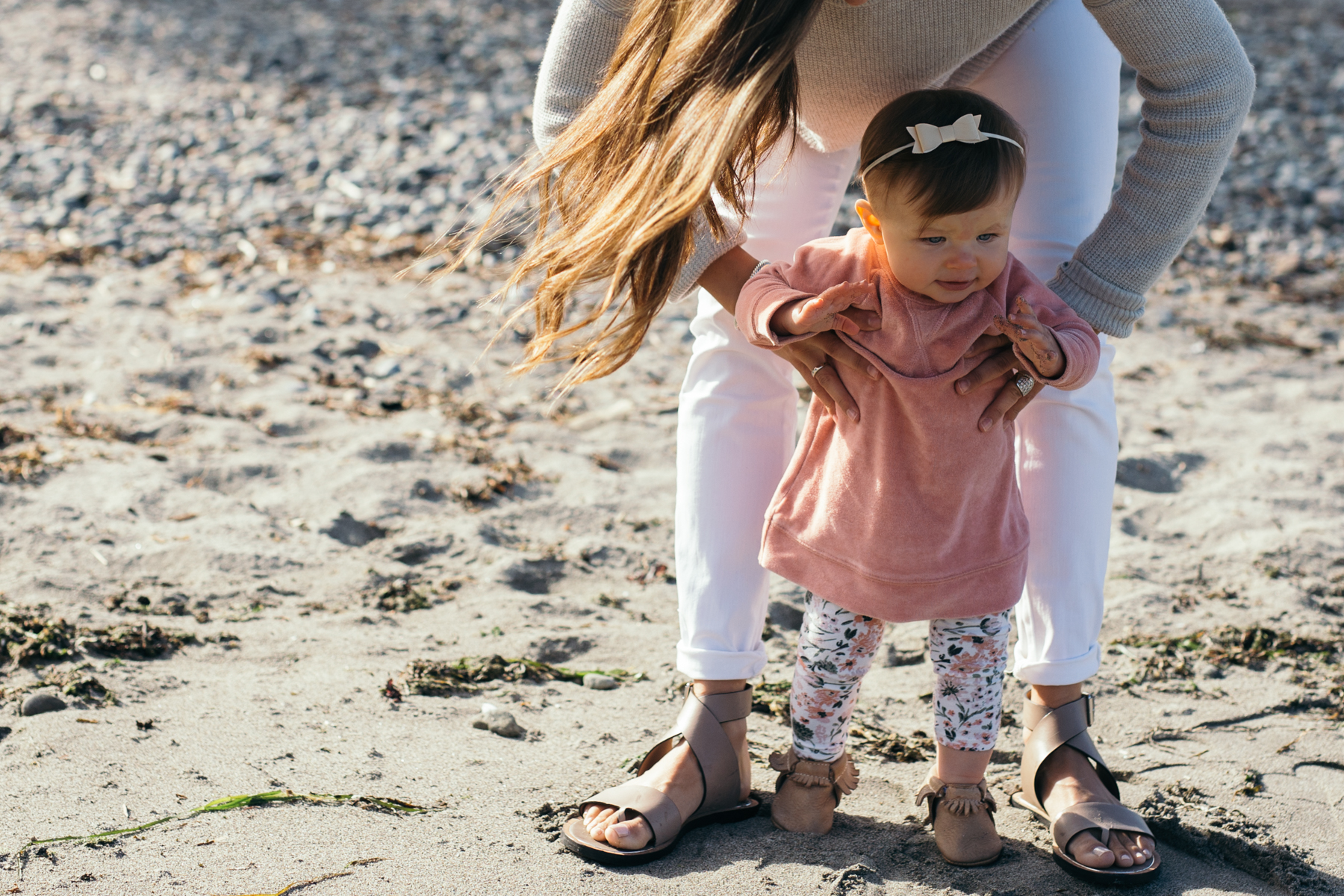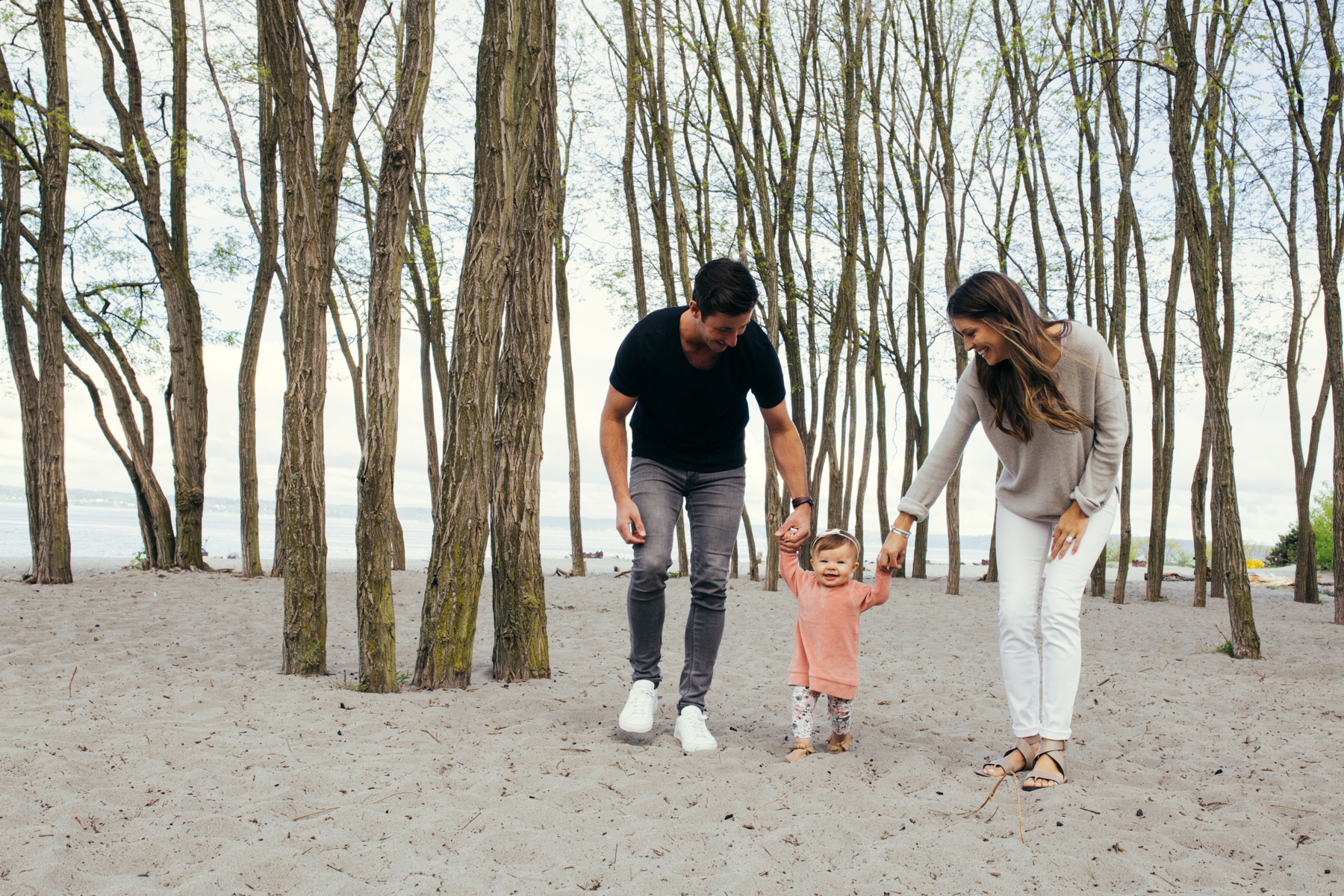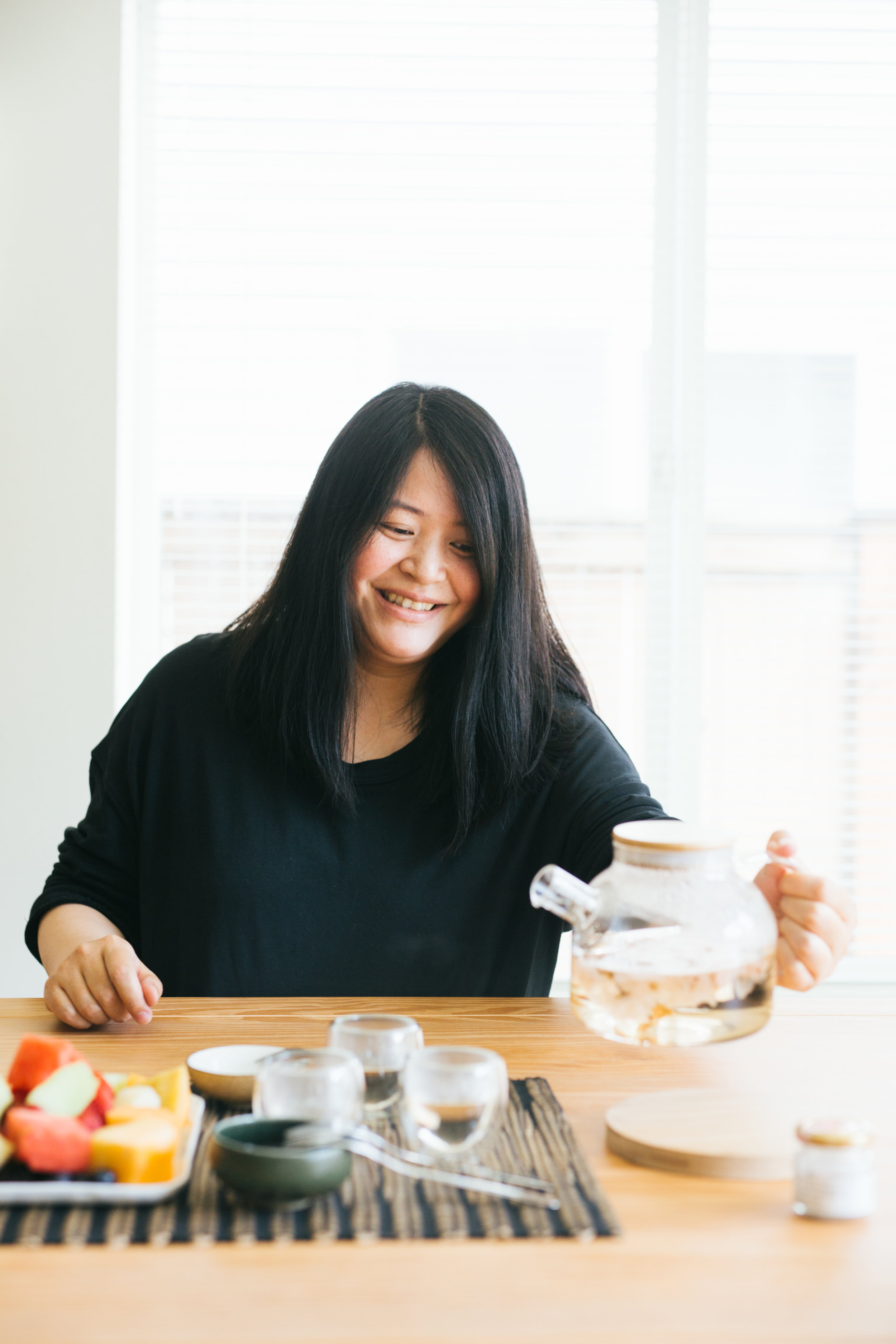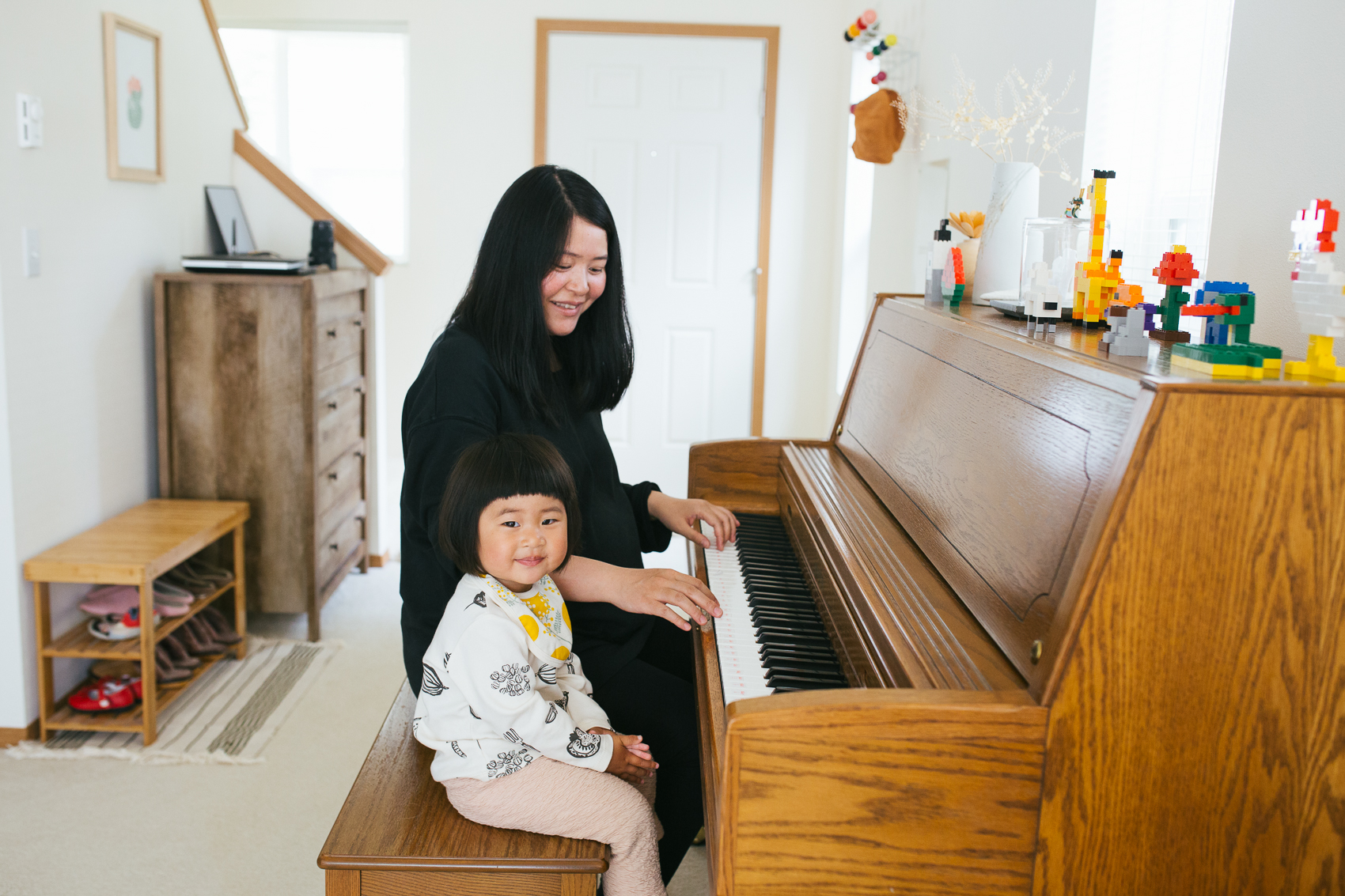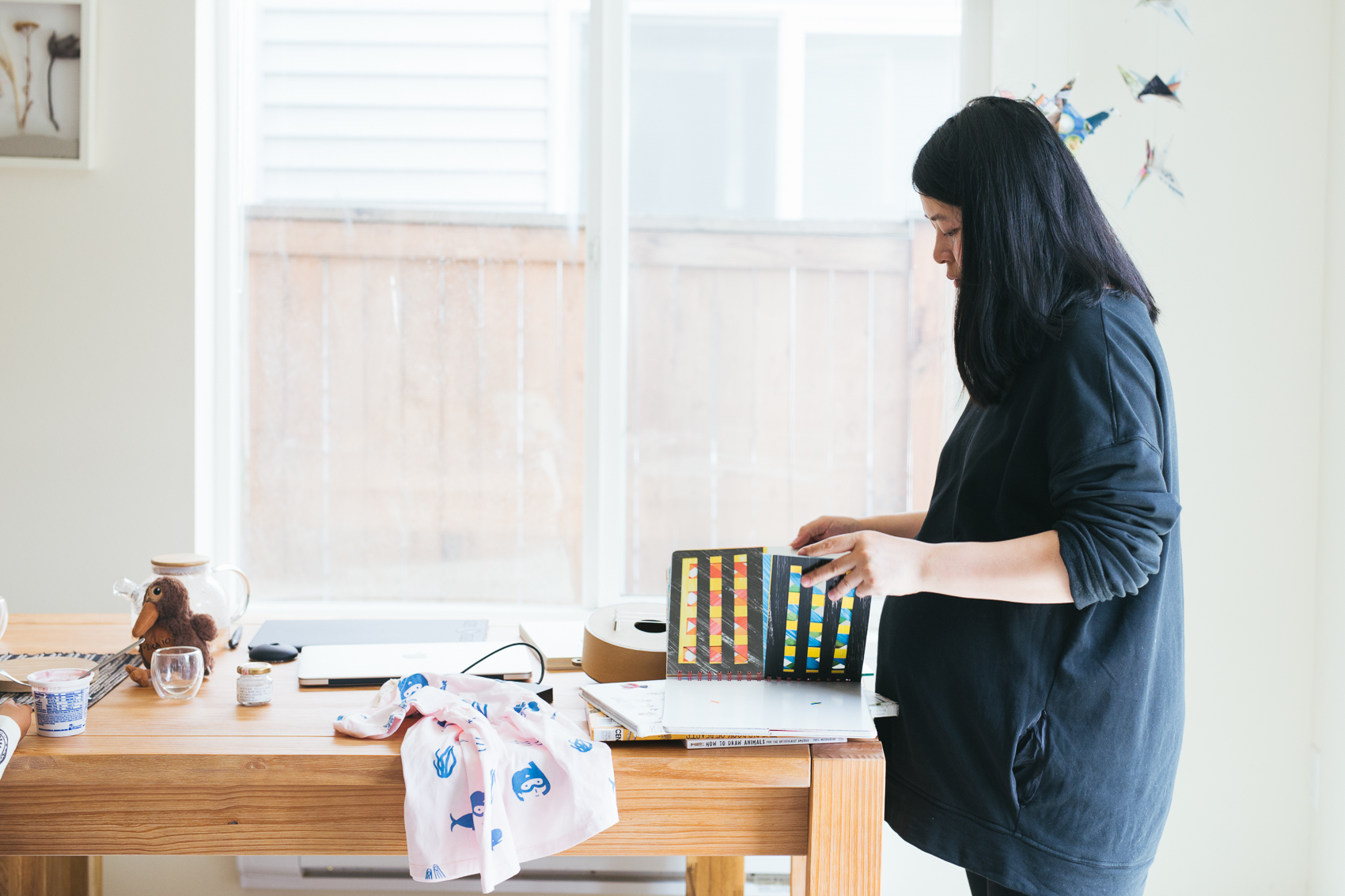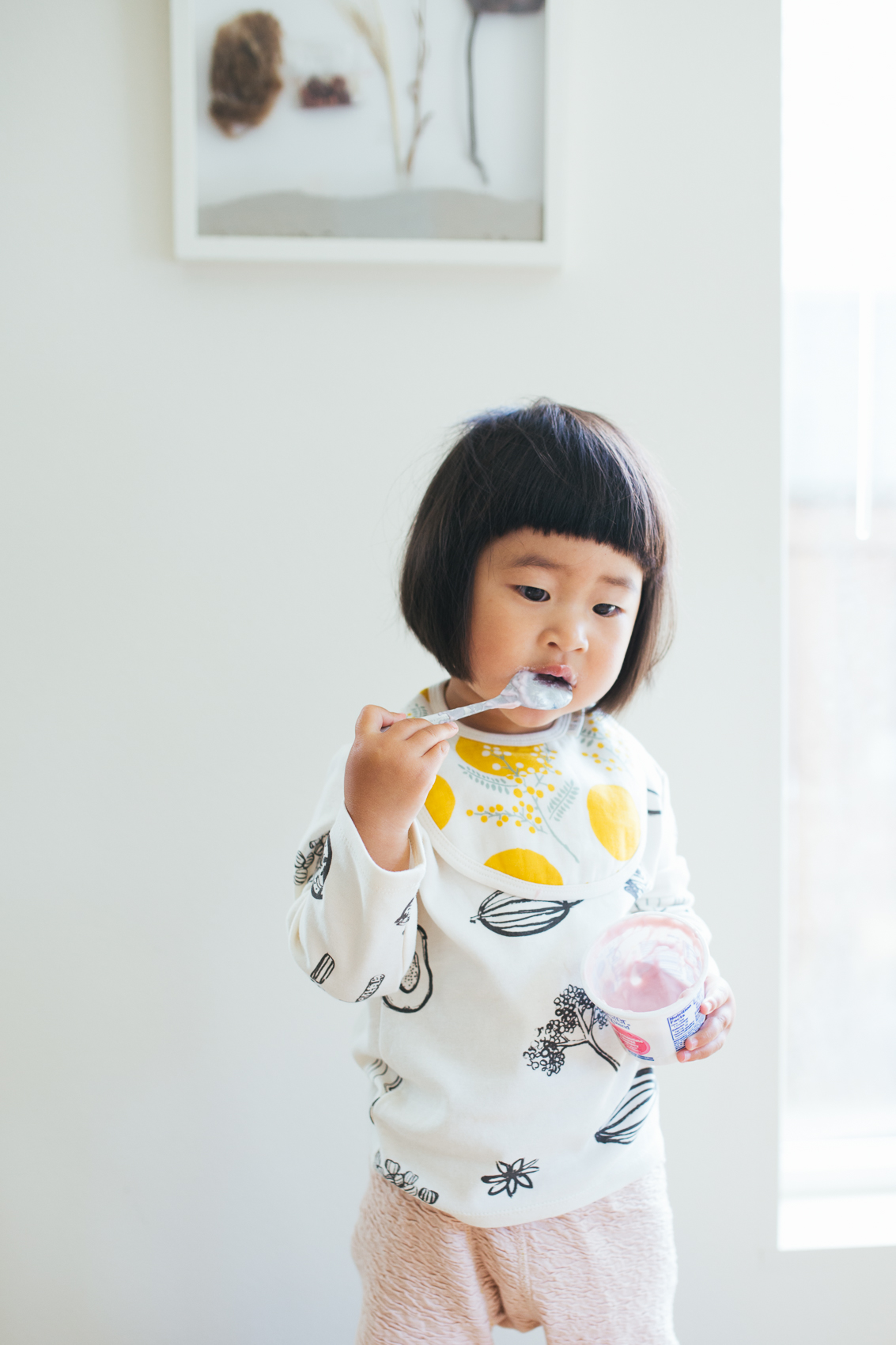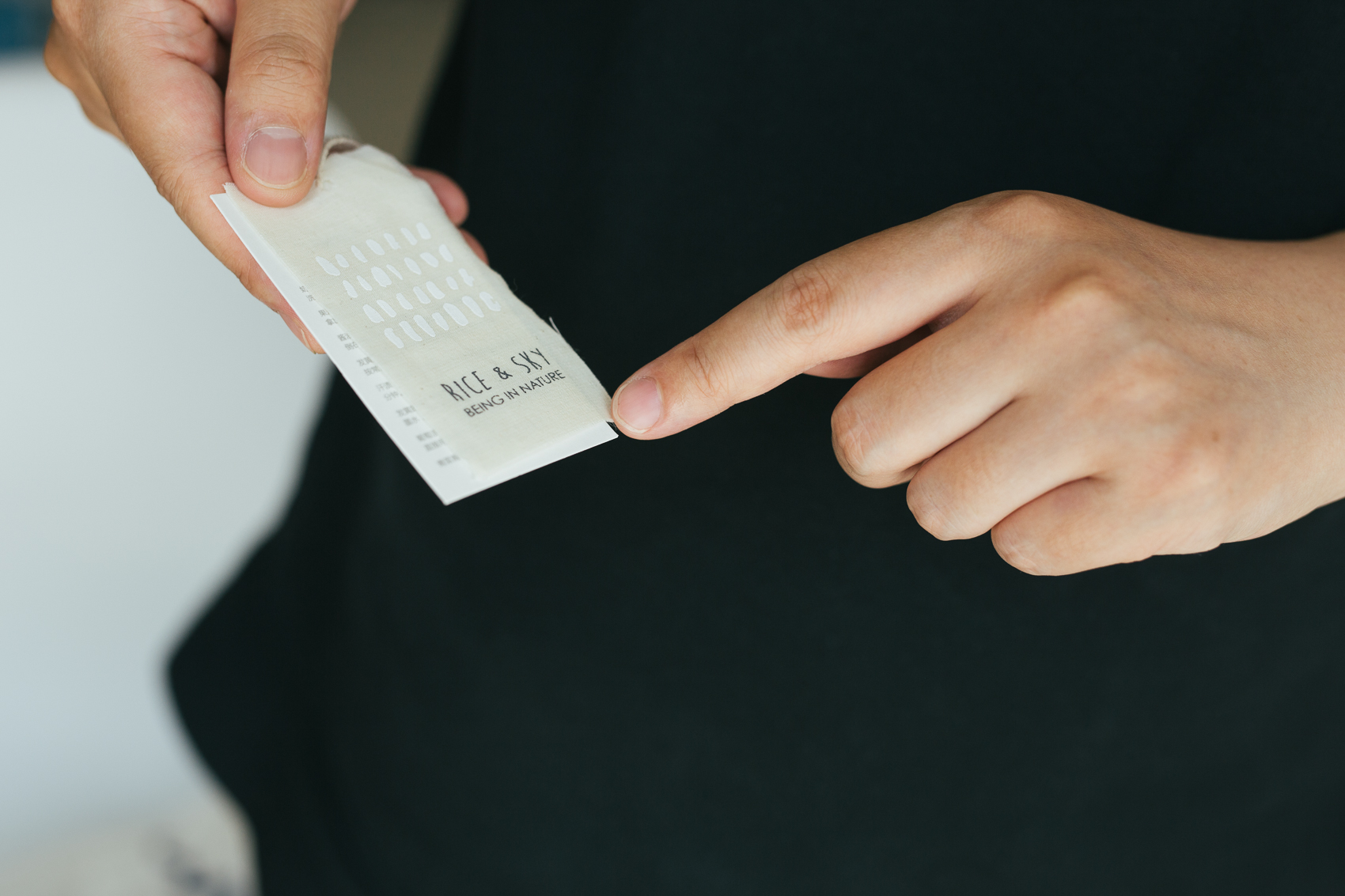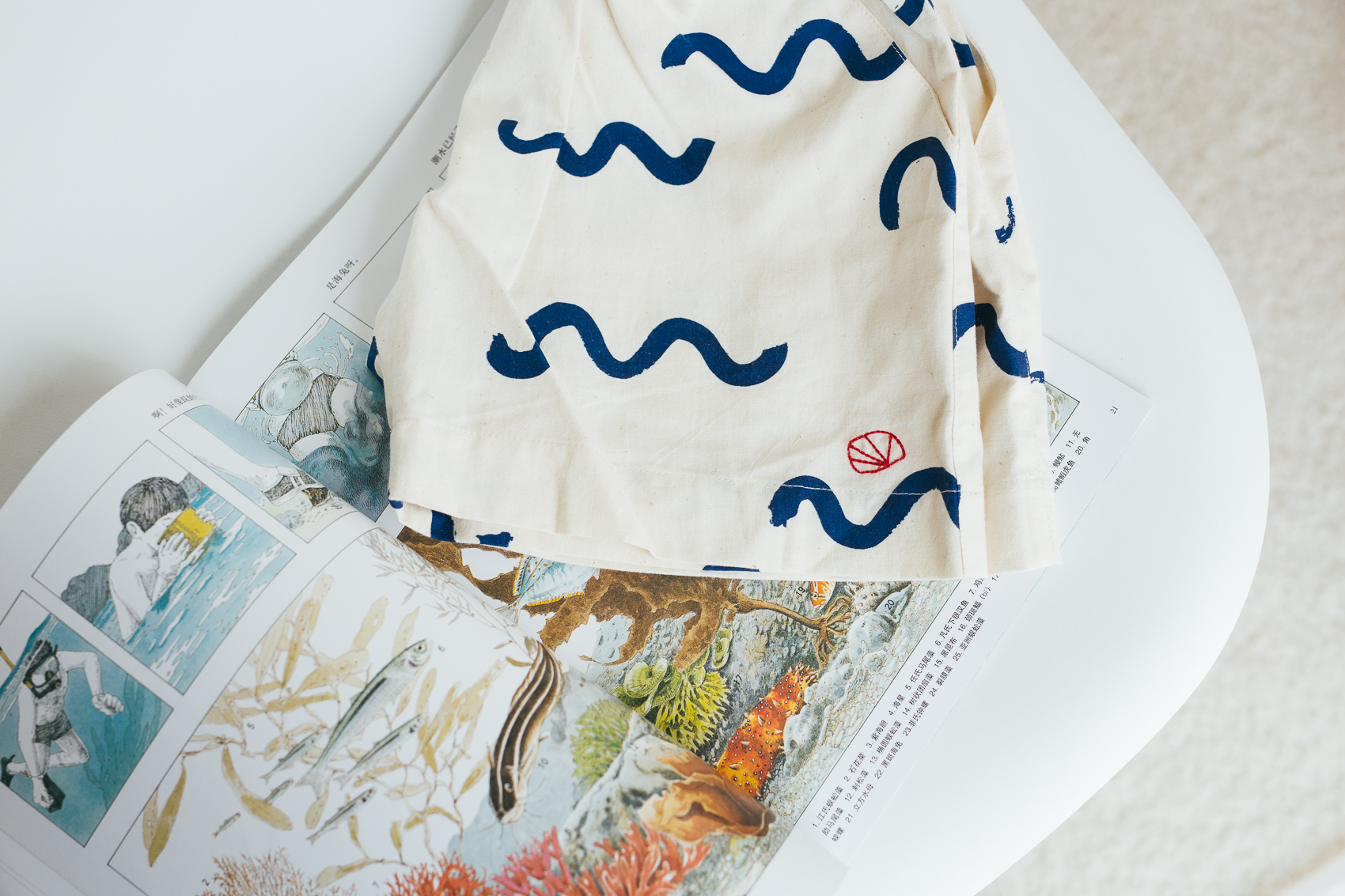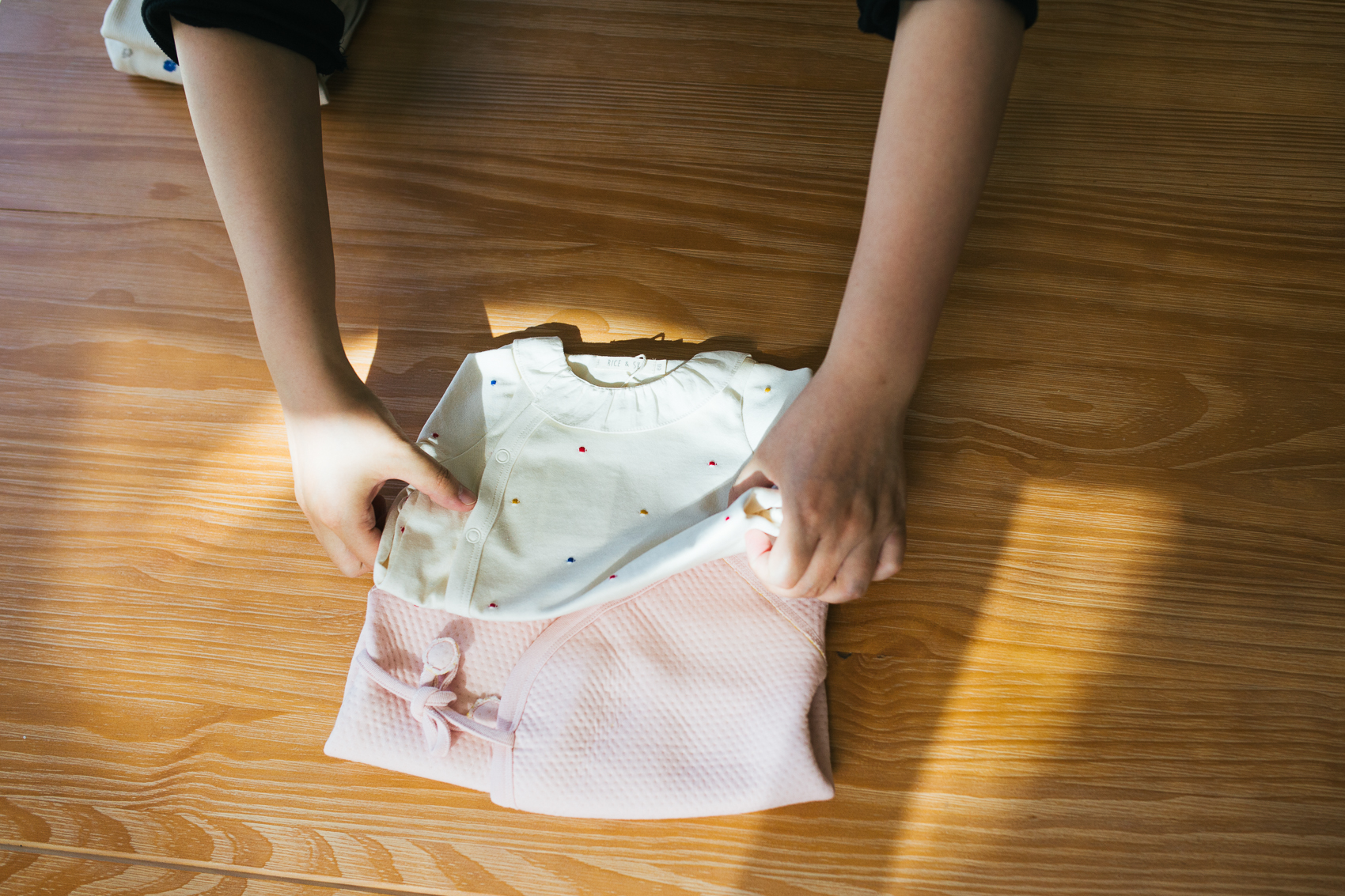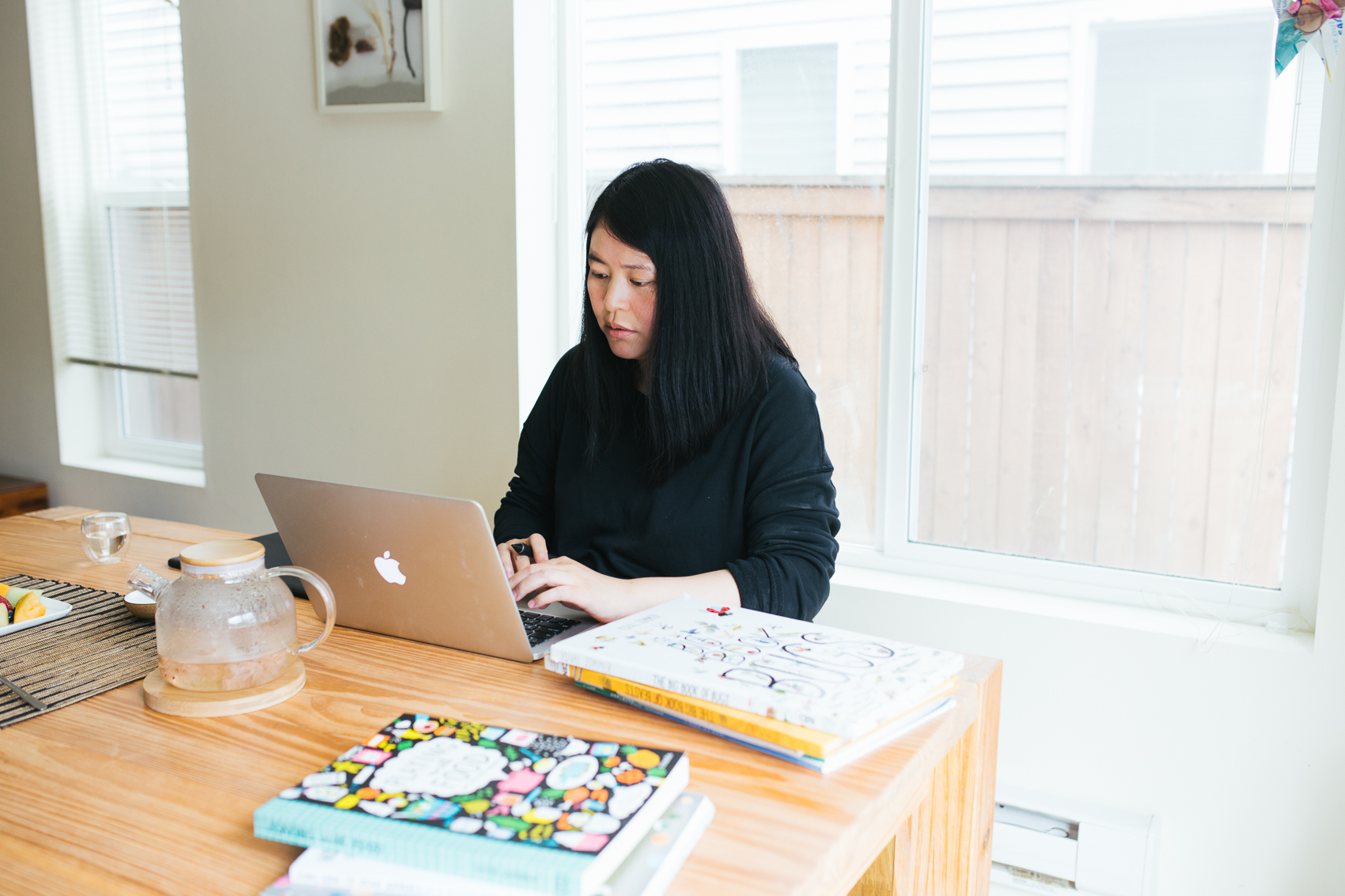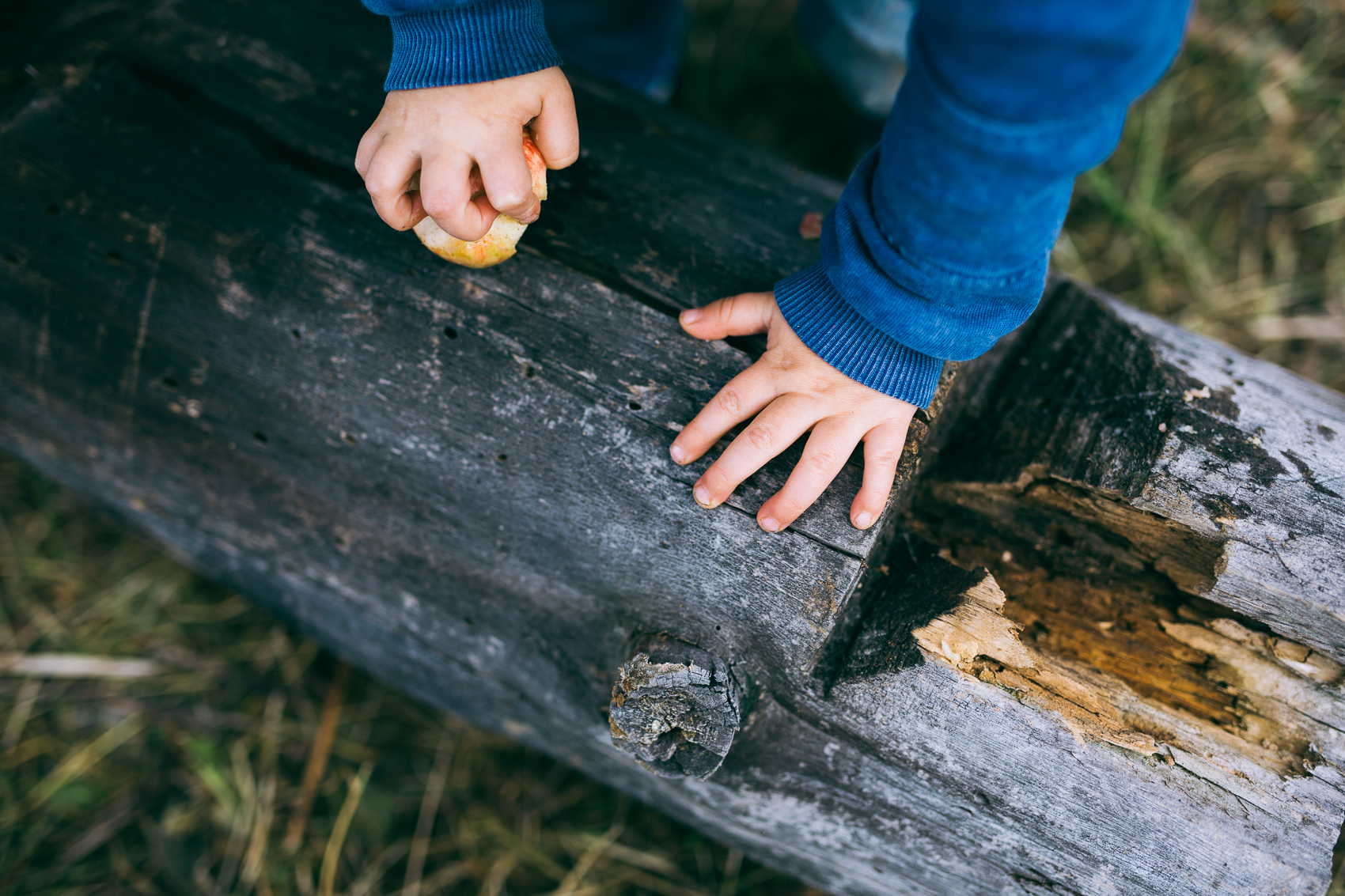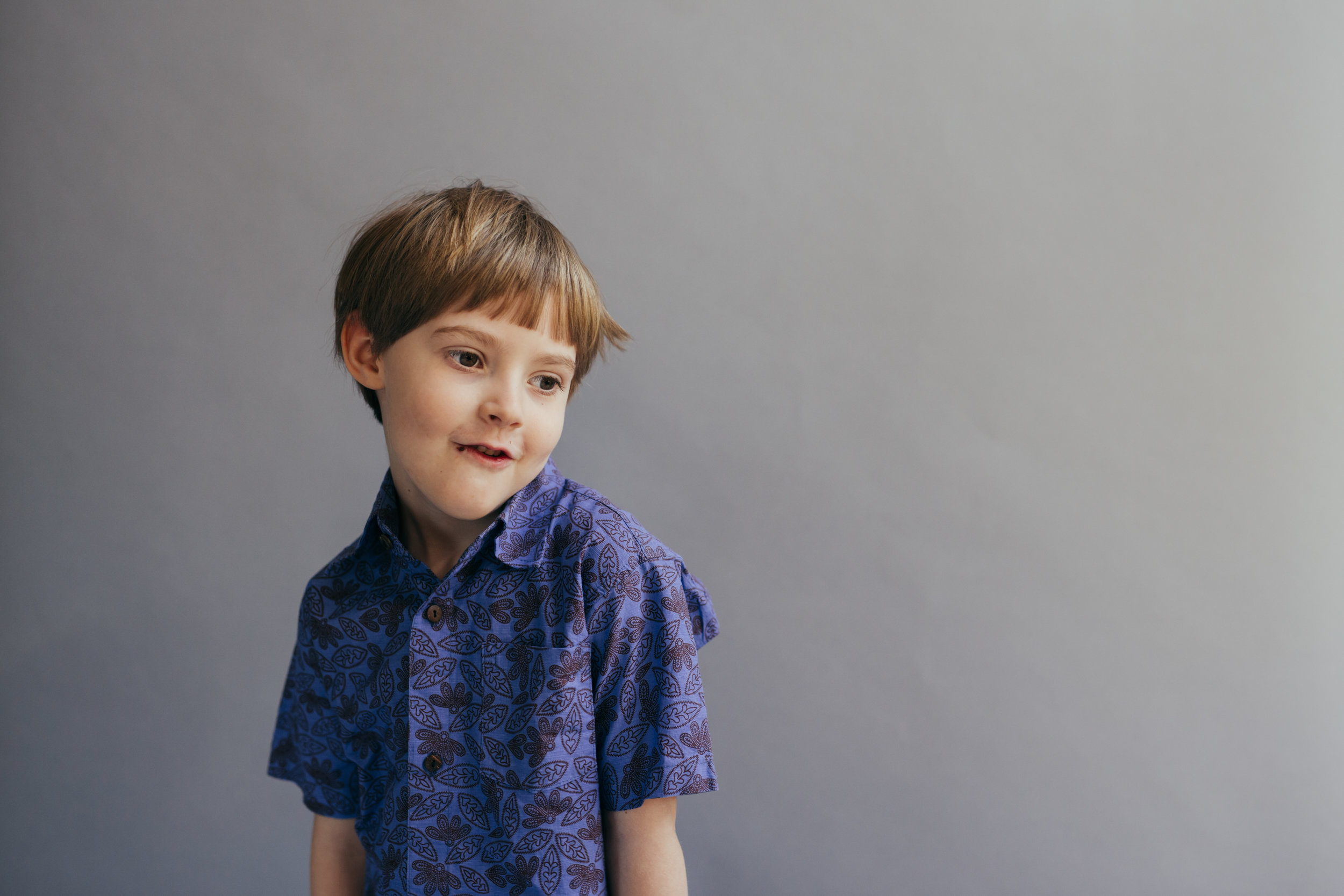Parenting with Perspective is a blog series featuring working Seattle mothers, highlighting the way their career, personal interests and experiences, extended family, spiritual practices, fostering, gender, and culture shape the lives of their families. The aim of the series is to feature local parents and build a community, but also, in a very very modest way, to do that without portraying mothers as single-mindedly focused on constituting themselves as a certain one kind of person (as social media often seems to do). I focus largely on parents who are either running their own business or work in academia because juggling parenting and work when there are no clear boundaries imposed by fixed work schedules is familiar to me. In the future, this might change.
I’ve been following Lauren’s blog for a while and have cooked quite a few delicious recipes she’s developed. I met with her family for an outdoor session in Capitol Hill. It was raining and chilly, but this glowing mama was unfazed and did not mind taking a two month old to two different locations and switching plans last minute.
1. You are a nutrition and hormone health coach, recipe developer and a blogger. Tell me a little about how you got here. Growing up, I was always petite and ate whatever I wanted, never thinking twice about it. I was a voracious eater and grew up in a family that loved to cook and eat well, and I also had a big sweet tooth. I was a late bloomer and didn’t hit puberty until I was 16, and when I did my body morphed overnight. All of a sudden I had the curves I’d always coveted, and that included a few extra pounds. It was the first time in my life I ever correlated that what I ate had a direct effect on my weight and how I looked, and from that point on I became obsessed with dieting as a way to “control” my body and appearance.
For the next 10 years I tried a plethora of diets and developed weird food rules I had to abide by in order to feel good about myself. For many years I was focused on calorie-counting and eating low calorie foods, which included a ton of processed foods like protein bars, cereal, low-fat yogurts, lean cuisines and fat-free jello and cool-whip. I was able to lose weight but as you can imagine I felt absolutely terrible -- my digestion was completely out of whack, I was always bloated, getting migraines constantly, didn’t sleep well, stopped menstruating regularly, my hair thinned and my skin broke out.
After years of these symptoms (and urging from my mom) I came to a point where I was fed up with feeling like crap and ready to make a change. I cut out inflammatory foods such as gluten, dairy, refined sugar and processed foods and began cooking at home for the first time in my life. At first this was intimidating since I was used to microwaving all of my meals (and knowing exactly how many calories and grams of fat were in everything) but I began to truly enjoy cooking. It was a way for me to de-stress, be present, use my hands and nourish my body (and the bodies of those I loved). This new passion inspired me to launch So Fresh N So Green in 2012, which started out as a recipe blog.
I also began to feel so much better, thanks to the switch to eating real, whole foods (including TONS of plants). My digestive issues dissipated, my hair became thick and full, I was back on a normal menstrual cycle and I had so much more energy, mental clarity and focus. I discovered how good it felt to take care of myself and prioritize my health (physically, mentally and emotionally) and I wanted to empower others to do the same, as I knew the positive impact it could have on a person and everyone around them. So I enrolled in the Institute For Integrative Nutrition to become a certified Nutrition + Hormone Health Coach, went to business school, and officially launched my nutrition and healthy lifestyle coaching business, So Fresh N So Green in 2016.
2. How has work changed for you since becoming a mom recently? It’s all progressed rather naturally, as before I even became pregnant I started noticing many symptoms in my clients that were reaching beyond food and tied to hormonal health. What you eat is one of the most impactful ways to balance your hormones, but hormone imbalances, symptoms and causes are complicated and I wanted to have a deeper level of understanding in order to better support clients. I went back to school to become accredited in hormone health, and this was right around the time my husband and I decided we wanted to expand our family. Hormones are essential to have a baby (it’s impossible to have one without) and I learned so much in regards to fertility. We were lucky to get pregnant soon after, and I do think having this knowledge and living a healthy lifestyle was really helpful for us.
I see a lot of people struggling with fertility, and not only does the CDC report currently that 3 out of 10 women have fertility issues, but they expect it to increase to 7 out 10 in the next 10 years. This is really upsetting, and while there’s more and more awareness developing on the topic, I think people are just on the cusp of learning how many things in our everyday environment are tied to fertility and hormone health. EMF radiation, high-stress lifestyles, toxins in our food, makeup, skincare, furniture, water, cleaning supplies, air, etc. are all contributing to hormone imbalances and symptoms such as infertility, weight gain or drastic weight loss, autoimmune conditions, food intolerances, digestive issues, hair loss, degenerative diseases, etc. So I feel it’s really important to help my clients navigate through these often times unknown or diagnosed symptoms to help them feel their best.
3. Both you and your partner work from home, and seems that you have continued working with a newborn. How do you manage that? I’m honestly taking it one day at a time and learning as I go. I do know time is as precious as it’s ever been for me now that I have a newborn, so I am being very selective about who I choose to work with. I feel really lucky that my husband is also an entrepreneur (he works in real estate) and mostly operates out of our home office. This makes it MUCH easier to switch off duties or run an errand during the weekdays, however his schedule is often unpredictable so we have to take that into account as well. I think communication here is paramount, and we’re learning how to do it better.
4. What are some health insights that you have as a nutrition and hormone health coach and that you personally found helpful you during pregnancy and postpartum? First and foremost, set everyone else’s advice aside and do what YOU feel is right for you (I realize the irony in this statement but couldn’t help myself). People just love to give unsolicited advice, ESPECIALLY on the topic of pregnancy and parenting. Everyone is so different and are going through their own unique experiences, so what worked for somebody else might not work for you -- and that’s totally OK. Listen to your intuition and consult a licensed medical practitioner (i.e. avoid Dr. Google).
I also think self-awareness is a key aspect in leading an overall healthy, happy life (and that goes for pregnancy and postpartum as well). Knowing how you operate, what you need to thrive, what lights you up inside and what drains you of energy is key to living your life in a way that empowers you to feel your best. For me I knew it was super important throughout pregnancy and postpartum to nourish myself with healthy meals, drink lots of water, remain active and exercise (I hiked all the way into my last month of pregnancy!) and prioritize sleep. I spent time with people and took on work projects that brought me great joy, and I said no to the things that were total energy or time-suckers.
If you can take a bit of time before pregnancy (really any time in your life works though) to get really clear on what you want to invite more of into your life, what you want to let go of, and what you need to truly thrive it will help you be more intentional throughout the process.
5. What are your favorite work spots around Seattle?
Truly I love working out of my home office, but when I can get out now I absolutely adore:
Juicebox for golden milk and quirky playlists
Oddfellows Cafe for creative-driven lunch meetings or Little Oddfellows for an oat milk latte
City Sweats -- although I don’t actually “work” there I LOVE to listen to health and wellness podcasts while I get my sweat on, it’s so therapeutic
Sweetgrass -- yummy eats and nice quiet loft to get work done
Jujubeet Juice Bar -- such a nice cozy environment and delicious smoothies
Bellden Cafe in Bellevue -- a great place for a coffee meeting and delicious cuppa
Little Brother -- my fave brunch spot on the eastside, I always get the breakfast bowl and suggest this spot for work lunches
Thanks, Lauren!
If you’d like to schedule your urban newborn session in or around Seattle or be featured on the blog, get in touch!



